

GHANA ENTRY REQUIREMENTS
All persons entering Ghana must have a valid passport or Travel Document establishing the identity of the holder.
THE FOLLOWING CATEGORIES OF PERSONS ARE EXEMPT FROM ENTRY VISA REQUIREMENTS TO GHANA:
Citizens from the below-listed ECOWAS Member States Benin Burkina Faso Cape Verde Côte d’Ivoire The Gambia, Guinea Bissau Guinea, Guinea-Bissau Liberia Mali Niger Nigeria Senegal Sierra Leone Togo
HOLDERS OF DIPLOMATIC SERVICE OR OFFICIAL PASSPORTS OF THE COUNTRIES LISTED BELOW:
Brazil, Cuba, Germany, *Hong Kong Special Administrative Region of China Iran, Namibia, Egypt NB: Exemptions category B above shall be for a period not exceeding ninety (90) days from the date of entry.
All nationals of the following countries: Kenya, Lesotho, Malawi, Namibia, Singapore South Africa, Tanzania, Trinidad and Tobago, Uganda, Zimbabwe **Children with ordinary passports accompanying holders of diplomatic, service, or official passports accredited to Ghana or South Africa are exempt from entry visa requirements.
LIST OF INTERNATIONAL ORGANIZATIONS WITH WHICH GHANA HAS CONCLUDED VISA EXEMPTION AGREEMENTS
Holders of passports of Regional Economic Communities in Africa and the African Economic Community, United Nations and its Specialized Agencies: The World Bank African Development Bank AIR-SIDE TRANSIT All persons in direct air side transit are exempt from visa requirements.
The following category of persons may not be granted entry visas: Prohibited immigrants A person without visible means of support An undesirable person On the advice of the health authorities, an individual may be refused entry into Ghana
IMPORTANT IMMIGRATION NOTICE
Individuals intending to travel to Ghana must note that;
The possession of the appropriate documents does not confer a right of entry; Travelers may be refused entry into Ghana if they fall within the category of prohibited immigrants and; If they do not satisfy immigration requirements at the point of entry. The Government of Ghana will not be financially liable for their repatriation.
OTHER RELEVANT ADDITIONAL INFORMATION BEFORE ENTRY INTO GHANA
Immigrant Quota – Persons who enter Ghana ostensibly as visitors may not be permitted to take employment. No person shall be permitted to accept employment or undertake an occupation for reward in Ghana unless such employment is within an authorized Immigrant Quota (an immigrant quota being the number of non-Ghanaians that a person or firm can employ). An application for Immigrant Quota must be made to:
THE SECRETARY IMMIGRANT QUOTA COMMITTEE MINISTRY OF THE INTERIOR P.O. BOX M. 42 ACCRA, GHANA
An approval for an Immigrant Quota for a foreign employee must be obtained before proceeding to Ghana.
Prospective Investors must register with the Ghana Investment Promotion Centre (GIPC). Application for the extension of visa or automatic quota must be accompanied by a supporting letter from the GIPC confirming the status of the Investor.
Investors interested in the Mining Sector must register with the Minerals Commission an approved Mining Services Company. Application for the extension of visa or Immigrant Quota must be accompanied by a supporting letter from the Minerals Commission confirming status.
PROFESSIONALS
It is an offence for foreign doctors, dentists, lawyers, pharmacists and other specific professionals to practice their profession in Ghana unless they register in accordance with the ordinances of their respective professions.
All professionals wishing to enter Ghana to practice one of the above-mentioned professions are required to provide particulars of their qualifications to help determine their eligibility for registration.
Foreign professionals such as doctor, lawyers, and pharmacists among others must be registered in accordance with the laws of their respective professions to practice in Ghana.
Professionals wishing to practice in Ghana are required to provide documentation of their qualifications to help determine registration eligibility.
>> CLICK TO LEARN MORE
Ghana Travel Restrictions
Traveler's COVID-19 vaccination status
Traveling from the United States to Ghana
Open for vaccinated visitors
COVID-19 testing
Not required
Not required for vaccinated visitors
Restaurants
Not required on public transportation.
Ghana entry details and exceptions
Documents & additional resources, ready to travel, find flights to ghana, find stays in ghana, explore more countries on travel restrictions map, destinations you can travel to now, dominican republic, netherlands, philippines, puerto rico, switzerland, united arab emirates, united kingdom, know when to go.
Sign up for email alerts as countries begin to open - choose the destinations you're interested in so you're in the know.
Can I travel to Ghana from the United States?
Most visitors from the United States, regardless of vaccination status, can enter Ghana.
Can I travel to Ghana if I am vaccinated?
Fully vaccinated visitors from the United States can enter Ghana without restrictions.
Can I travel to Ghana without being vaccinated?
Unvaccinated visitors from the United States can enter Ghana without restrictions.
Do I need a COVID test to enter Ghana?
Visitors from the United States are not required to present a negative COVID-19 PCR test or antigen result upon entering Ghana.
Can I travel to Ghana without quarantine?
Travelers from the United States are not required to quarantine.
Do I need to wear a mask in Ghana?
Mask usage in Ghana is not required on public transportation.
Are the restaurants and bars open in Ghana?
Restaurants in Ghana are open. Bars in Ghana are .
18 things to know before traveling to Ghana

Mar 7, 2024 • 7 min read
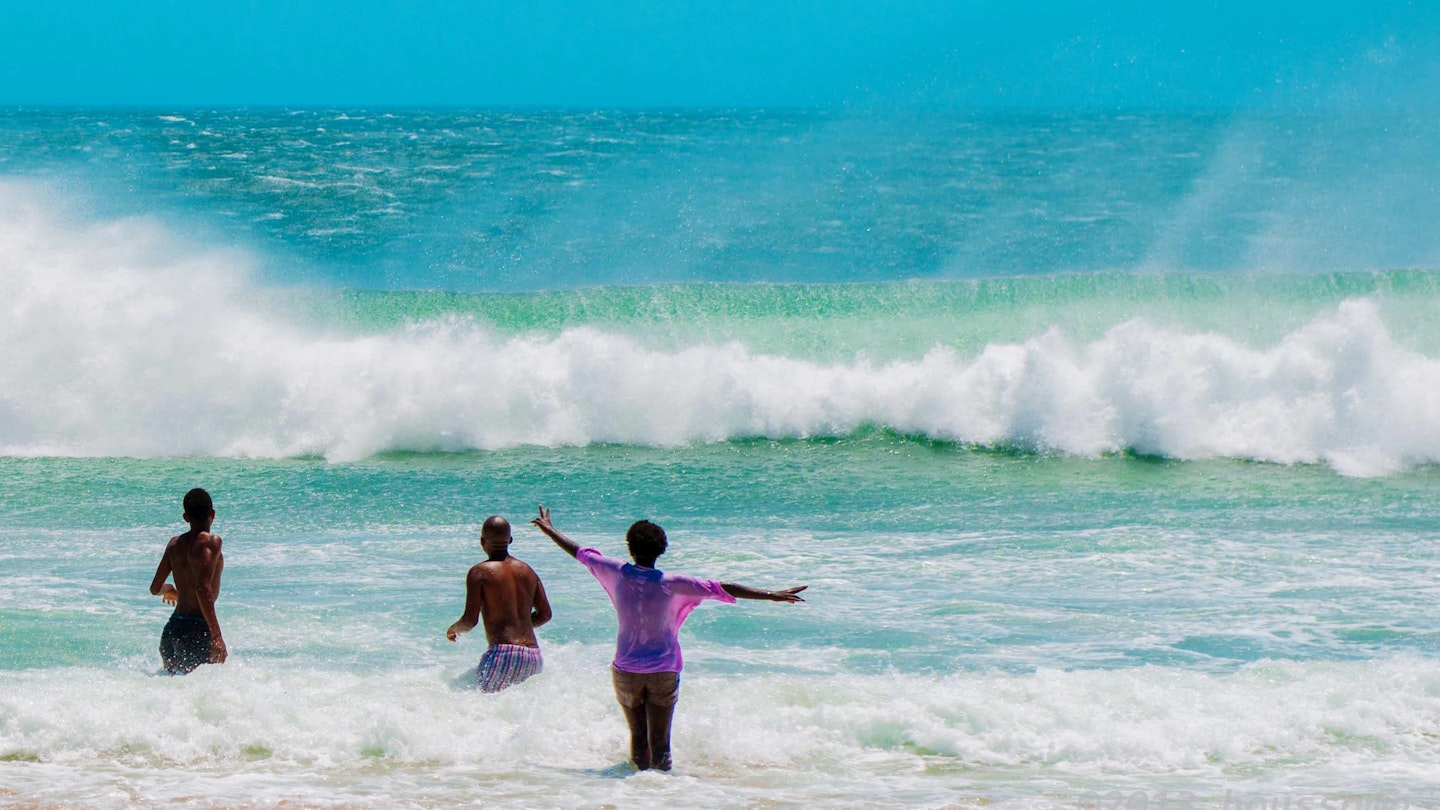
Whether you're a first-time visitor or returning for more, here's what you need to know to prepare for your trip to Ghana © Houssam Ghandour / Getty Images
Travelers have plenty to look forward to on their trip to culturally rich Ghana .
Welcoming Ghana is considered one of the friendliest spots in West Africa, and with its compelling history, vibrant clothing prints and flavorful dishes , tourists keep coming back for more.
Life in Ghana generally moves at a slow, relaxed pace, but it can also be chaotic and fast in different settings. Embrace the cultural differences, mass traffic and intense bargaining, and you may fall in love with the place. Whether you're a first-time visitor or returning once again, here's what you need to know to prepare for your trip to Ghana.
1. Gather the necessary documents for entry
Getting the paperwork together to visit Ghana is a process on its own and can be pricey. All visitors to Ghana must have a valid visa , and they range in cost depending on whether you apply for a single-entry or multiple-entry visa. Your visa for Ghana can take nearly three weeks to arrive unless you shell out extra for an expedited service.
A yellow fever vaccine is also required for entry into Ghana. Check with your local health department or medical clinics to get vaccinated. Malaria pills are also strongly recommended for visitors and can be prescribed by your doctor. If you can't get your hands on them before coming, pharmacies in Ghana have plenty in stock, and they tend to be a lot cheaper.
2. Carry a copy of your passport
If you plan to visit different cities outside of Accra , be sure to print a copy of your passport to keep in your bag as you travel around the country. Police stops are common, and officers are known to ask for passport information.
3. Forget you have a left hand
In Ghana, actions like eating, waving and handing an item to someone are to be done with your right hand only (sorry, left-handers!). From an early age, many Ghanaians are taught that their left hand is to be used for cleaning themselves in the bathroom. Therefore, your left hand is considered filthy and should not be used for eating and other activities. Using your left hand for gestures and main tasks is considered highly disrespectful.
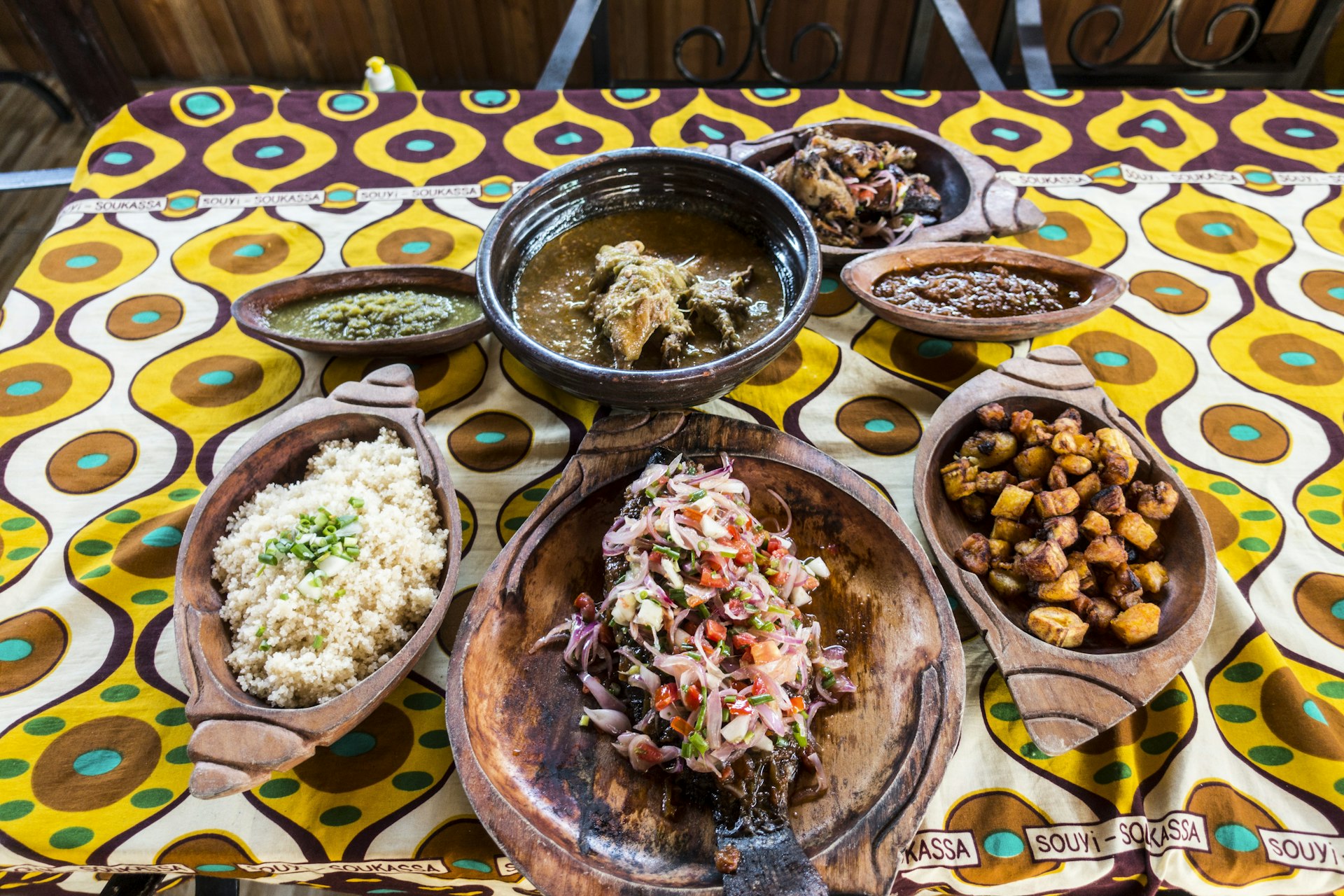
4. Eating with your hands is a cultural practice
Soup-based meals are paired with a starch staple food like fufu or banku and eaten with your hands (remember the right-hand rule!). Be observant of how those around you are eating, embrace the culture and dig in.
5. Keep your thumbs down
While the thumbs-up gesture in many places signifies approval, in Ghana, it shows disrespect.
6. Always greet others
Greetings in Ghana are a big deal, and it’s considered rude to not greet others. When you enter a room, you should say hello, good morning, good afternoon or good evening. When you meet a group of adults and greet them with a handshake, start with the person on the farthest right.
7. Respect your elders
Respect for elders is immense in Ghana. You should not greet elders with a hat on your head. If you are wearing a hat, take it off completely or lift it halfway while extending your greeting. Give up your seat on the bus for those older than you. Crossing your legs and having your hands in your pockets in the presence of elders are gestures that are frowned upon.
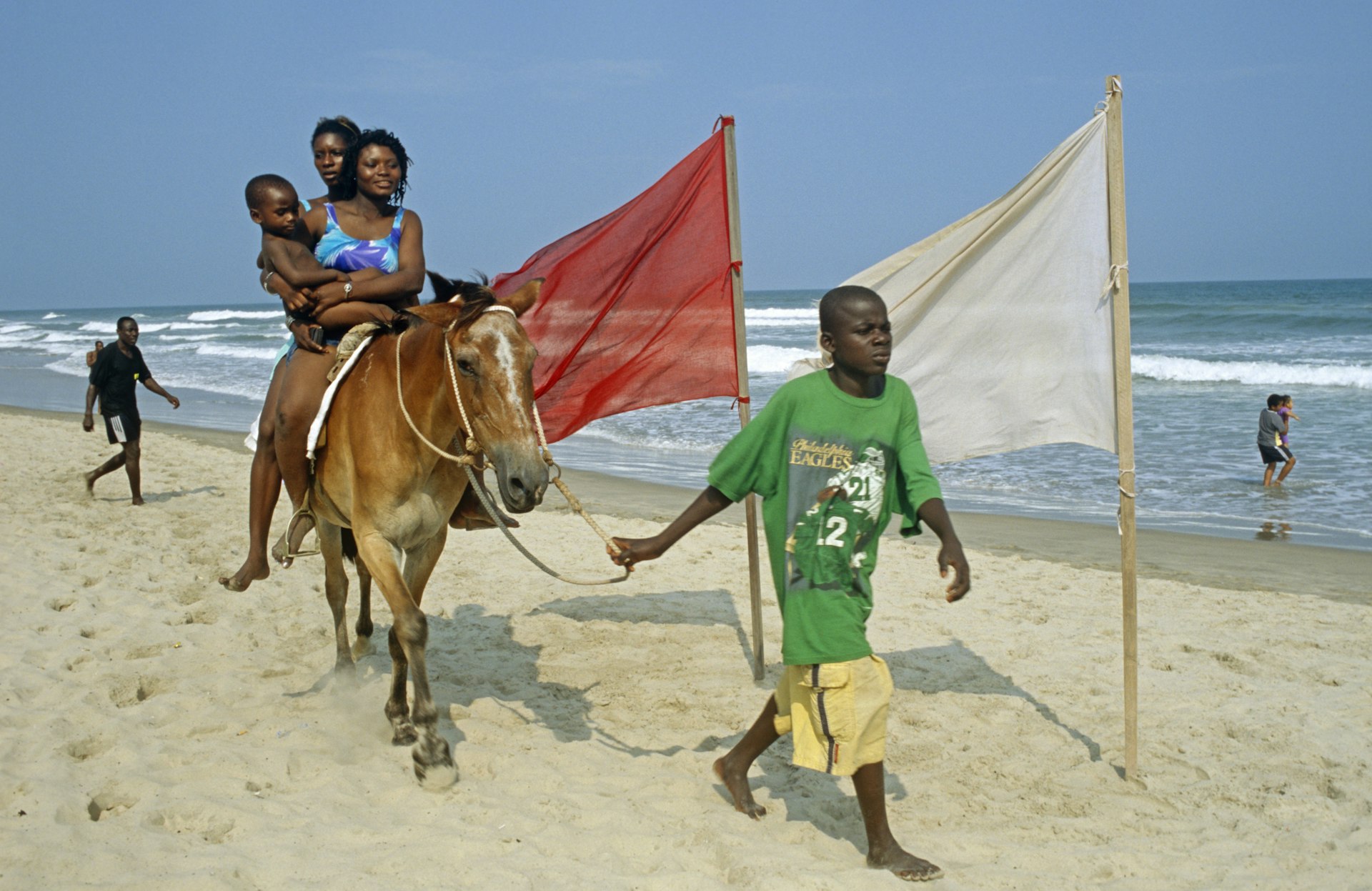
8. Be mindful of clothing cultures from city to city
Ghanaian clothing culture tends to lean more towards the conservative side. Accra is more relaxed, and you’re likely to see more shorts and crop tops. However, people elsewhere tend to cover up, so bring clothing that covers your chest and shoulders and reaches or goes past your knees.
9. Learn common phrases in Twi and other languages
Ghana is home to many different languages and ethnic groups. Twi, Ewe, Ga and Krobo are a few of many languages spoken depending on the region. English is widely spoken, but it's important to remember that not everyone speaks it, especially once you are out of Accra and into rural parts of Ghana. Learning a few phrases in the local language is always appreciated and embraced by Ghanaians.
10. Watch your belongings
Pickpocketing and instances of petty theft might be the biggest concern you'll have in Ghana. Pickpocketing can be prevalent in crowded areas like Osu, Madina and Makola Market. Always keep your bag in front of you and away from the roadside to avoid snatching incidents. Don't carry a large amount of cash on you.
Your phone should always be in sight and accounted for. Motorcyclists in Accra are known to snatch phones out of the hands of people as they are passing by both in cars and when walking. It is wise to never stick your phone out of a car window for pictures and videos.
11. Expect the police to stop you
Police stops in Ghana occur frequently, mainly at night but they can happen throughout the day. Your vehicle can be randomly searched by officers, and they may ask for ID and search your bag. These searches usually last for about five minutes, and it is best to comply.
Bribery is common in Ghana, and you may be asked to "dash" officers, which means tip. You can choose to give it or not as it's often only C10 to C20 (US$0.95 to US$1.90), but it may make the difference between a five-minute stop and a 40-minute one.
Police encounters in Ghana are generally nothing to worry about. Officers may have a “tough guy” attitude, but as you talk to them more, the guard comes down and they are usually friendly.
12. Be wary of swift romantic encounters
It’s easy to meet new people in Ghana, and conversations are always flowing. People are open to new connections and tend to get close quickly at times, but be careful of fast-moving romantic approaches and those who immediately ask for favors or money. Scams are common in Ghana and can occur in romantic encounters.
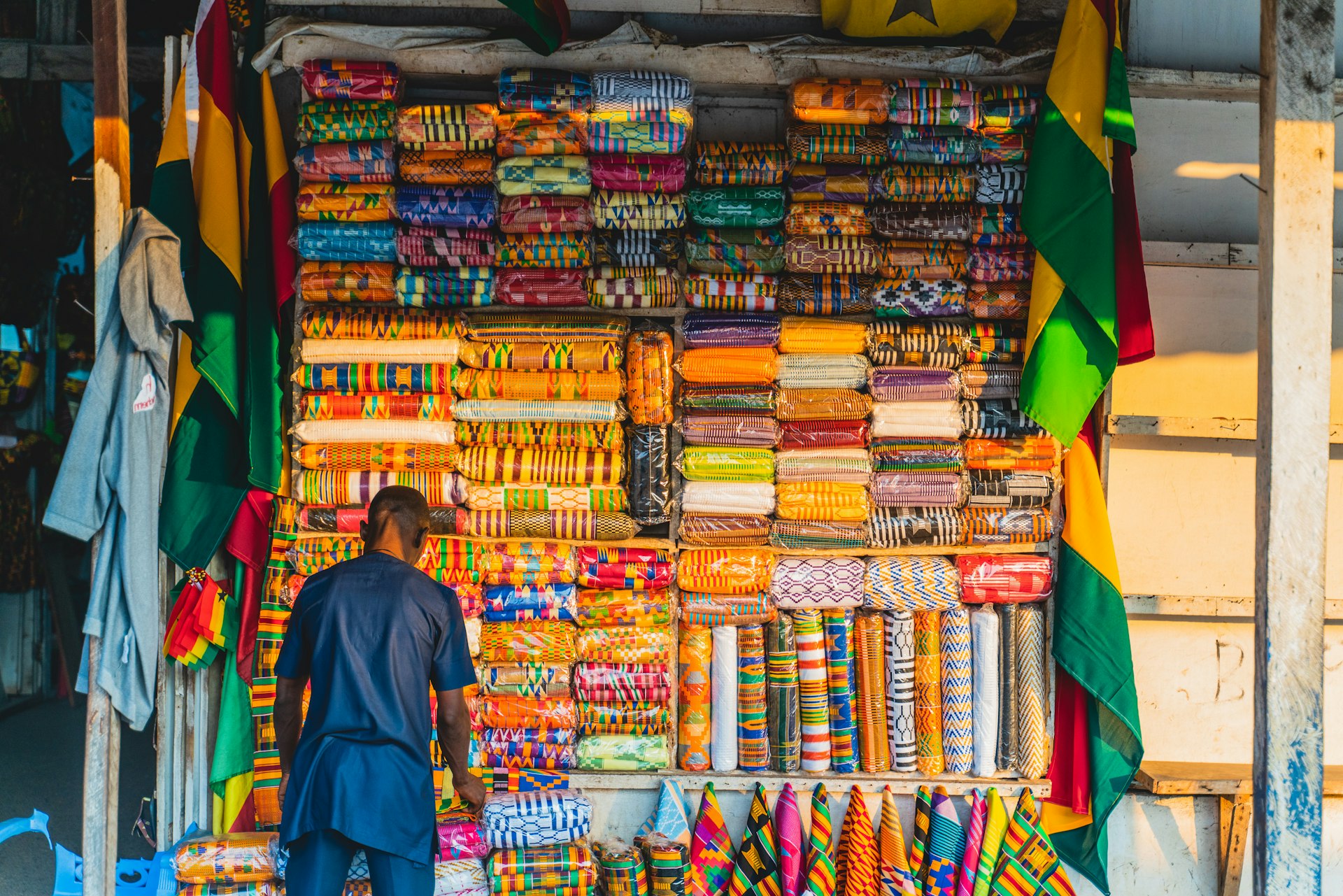
13. Be sure to carry cash
When you’re in Ghana, always have some cash on you, or you may find yourself stuck. Not every establishment accepts card payments, and if they do, the POS systems are often down. ATMs are everywhere in Ghana, so getting cash is easy. You can still bring both credit and debit cards, but be prepared that not everywhere in Ghana will accept them.
Forex Bureau exchange shops will change your cash to Ghanaian cedis. Large denomination bills (100s) will get you a higher exchange rate.
14. Avoid drinking the water
Drinking tap water in Ghana is not a good idea because there’s no guarantee that the water has gone through the proper measures to ensure it is safe. Boil your water or use a water filter before you drink it.
15. Expect weak wi-fi in most areas
Ask your accommodation about wi-fi speeds before your arrival if you plan to use it. Even if internet speeds aren’t the best where you’re staying, you can find reliable spots such as Vida e Caffè and Basecamp Initiative .
16. Use cash for Uber and Bolt
Download Uber and Bolt before you arrive. While paying by card is an option on both apps, don’t plan on using it. Many drivers prefer cash and will cancel your ride if they find out you are paying using your card, or it could be an issue once you arrive at your destination. You can always ask the driver to stop at an ATM before the final drop-off point.
17. Get a local phone number
Ghana is a place where verbal conversations are preferred over texting and online communication. You can get a local SIM card at Vodafone , a phone carrier at A&C Mall in Accra, so that you have a Ghanaian number. Drivers often call their passengers to find out exactly where they are.
18. Never underestimate Accra traffic
Accra traffic is nothing to be played with. You may see an attraction that you want to check out that is only 15 minutes away from your accommodations but it might take an hour and a half simply because of the volume of traffic. It's best not to set reservations for a place if you don't have to. While traffic and delays can be extremely frustrating, you’ll have to learn to go with the flow.
This article was first published Mar 11, 2022 and updated Mar 7, 2024.
Explore related stories

Tips & Advice
Sep 29, 2023 • 9 min read
November is the perfect time to give yourself a travel-fueled lift, with destinations primed for exploration during the penultimate month of the year.
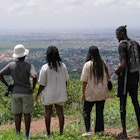
Apr 13, 2023 • 8 min read
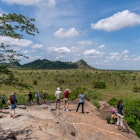
Apr 11, 2023 • 6 min read

Apr 6, 2023 • 3 min read

Mar 17, 2023 • 6 min read

Mar 9, 2023 • 7 min read
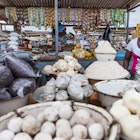
Oct 7, 2022 • 6 min read

Jul 30, 2020 • 9 min read

Jan 29, 2020 • 9 min read

Dec 5, 2023 • 4 min read
- Feast Ghana
- African Games
- Kwahu Paragliding
- #DecemberInGH
- Visit Ghana App
- Book City Tour
- Manhyia Palace Museum
- Kpetoe Agotime Kente Village
- Ntonso Adinkra
- Daboya Fugu
- Bonwire Kente Village
- Sirigu Pottery & Art
- Forts and Castles
- Kwame Nkrumah Memorial Park
- Cape Coast Castle
- Elmina Castle
- Komfo Anokye Sword Site
- Larabanga Mosque
- Bisa Aberwa Museum
- Assin Manso Slave River
- Nakore Mosque
- Paragliding Festival
- Kakum National Park
- Legon Botanical Gardens
- Aburi Quad Biking
- Mountain Afadja (Afadjato)
- Tafi-Atome Monkey Sanctuary
- Wli Waterfalls
- Lake Bosomtwi
- Nzulezu Village On Stilt
- Bunso Eco Park
- Bobiri Forest and Butterfly Sanctuary
- Wechiau Hippo Sanctuary and River Safari
- Asogli Yam Festival
- Odwira Festival
- Greater Accra
- Beyond The Return
- Year Of Return
- Travel Information
- Flight & Transport
- Ghana Gurus
- Directory Of Licensed Enterprises
- Travel & Tours
- Ghanaian Name
- GTA Services
- 2024 Emancipation
- DecemberInGH
- Year of Return
- Latest News
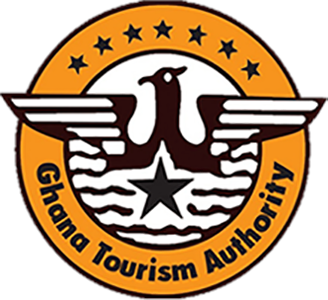
Things To Do

Attractions

Experience our rich culture

Relive history through our heritage

Feel the warmth in 16 regions
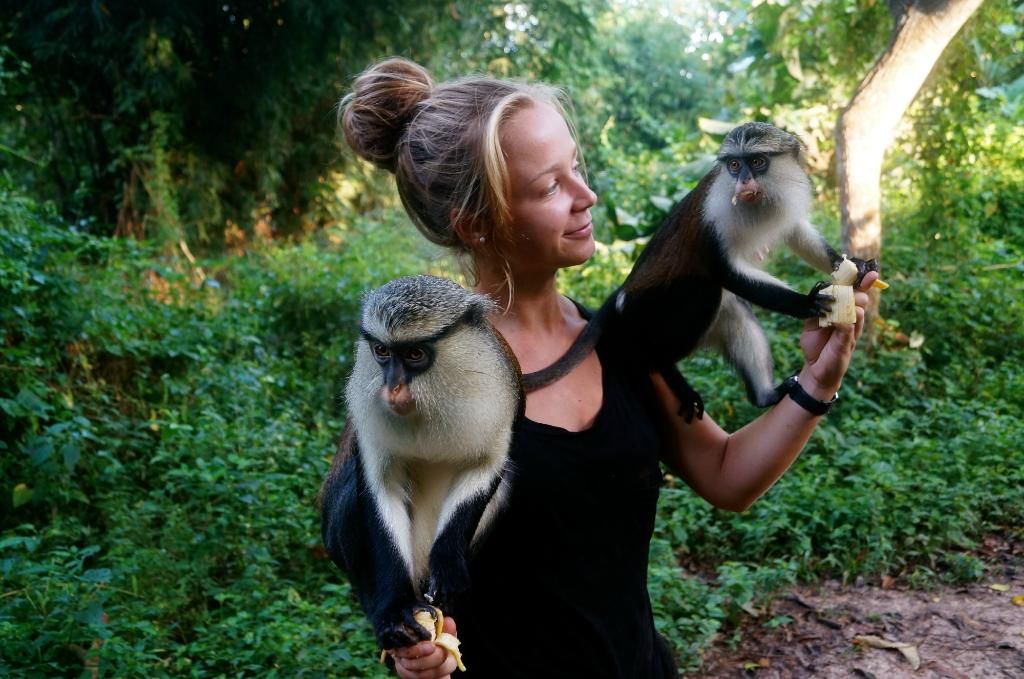
Every experience is an Adventure
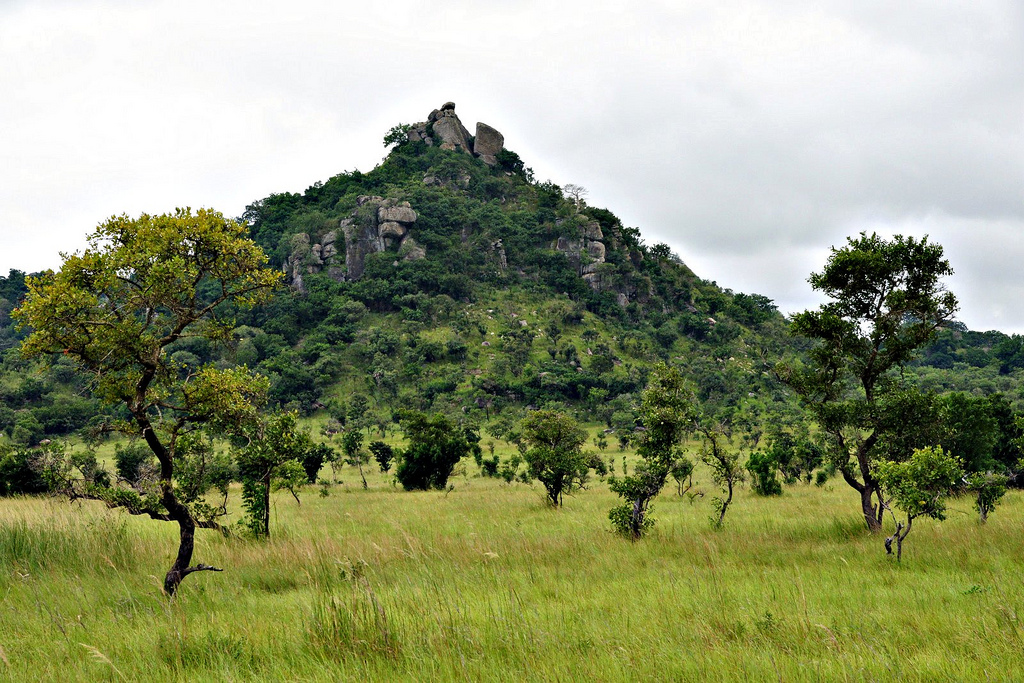
Upclose with nature throught our Ecotourism sites

Entertainment and Nightlife
Feel the rhythm with our entertaining nightlife.
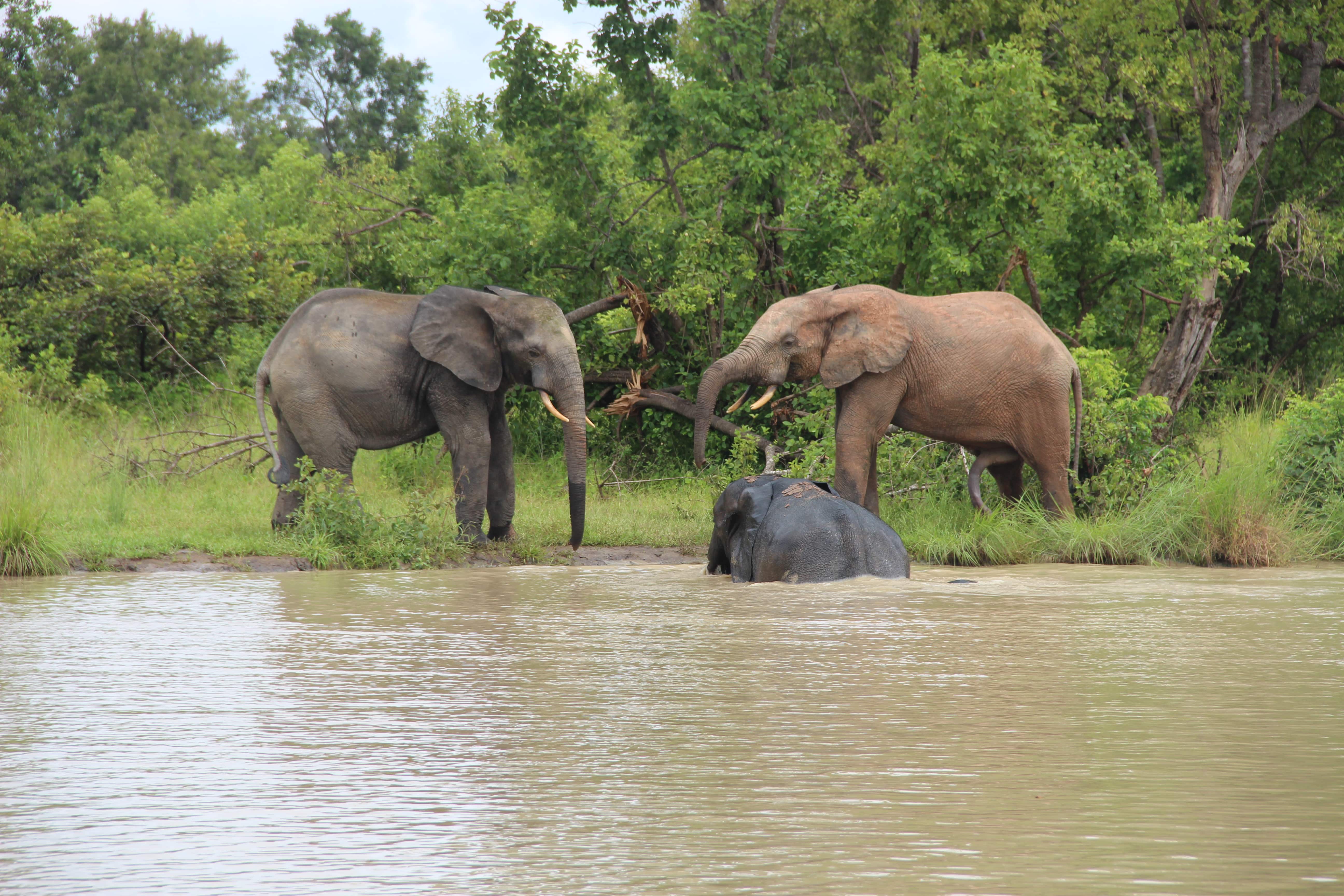
Experience the nature covens in Ghana.
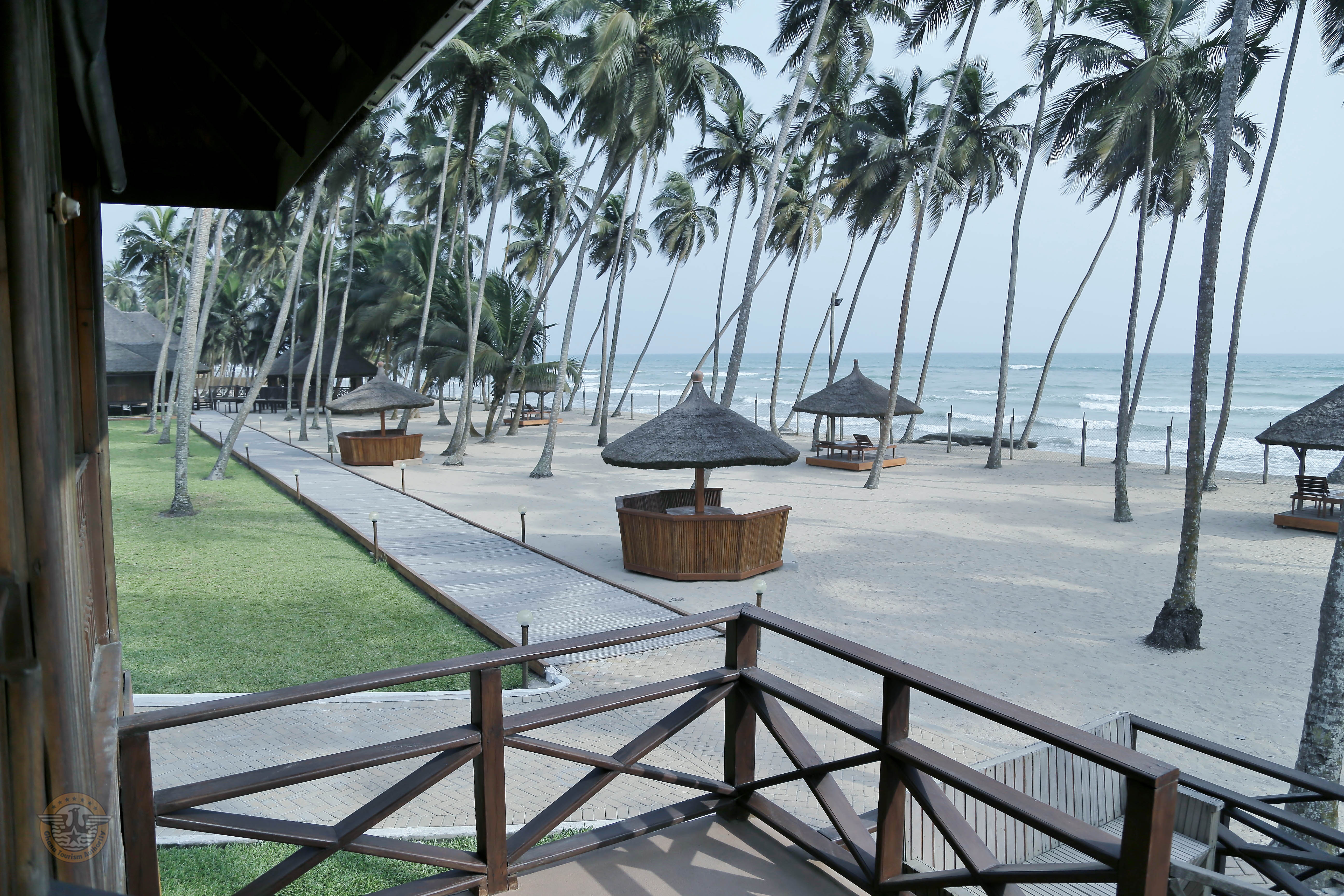
Sea, Sun & Sand
Visit the sandy shores, bask in the sun and stir the sand.

Experience festive occassions with rich cultural values
Don’t Be Told
Experience ghana.
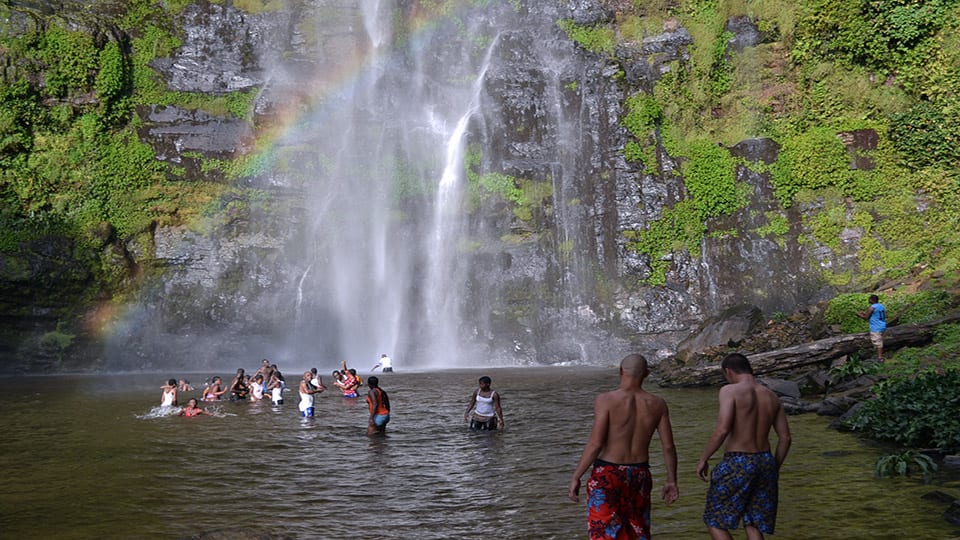
360 WLI WATERFALL
West Africa’s Tallest Waterfall, Located In The Volta Region Of Ghana.

360 CAPE COAST CASTLE
This Historic Castle Is The Largest Of The Buildings Which Contain The Legacy Of The Trans-Atlantic Slave Trade.
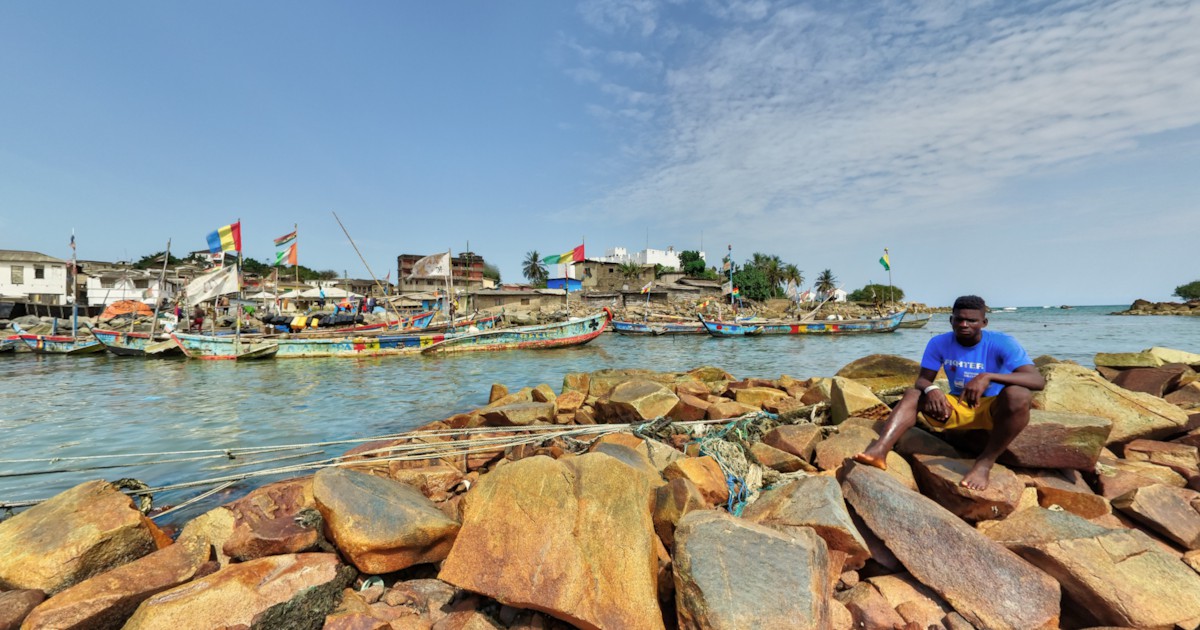
360 FORT METAL CROSS
Situated On The Shores Of A Rocky Cove, Dixcove Is A Colourful And Animated Fishing Town, Dominated By This Colonial Fort.
Explorational Stories
News and Updates

Essential Handy Tips
Travel Tips
Subscribe to receive updates on tourism attractions and happenings.


- Get in Touch
Ghana Travel Requirements
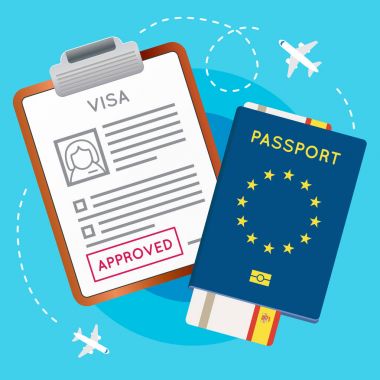
If you are planning a visit to Ghana, please review the current travel requirements and restrictions for entry into the country.
Requirements:
- Passport with at least 6 months validity and blank page for stamp
- Yellow Fever vaccine (or medical waiver)
- Travel visa issued from home country or visa on arrival
- COVID-19 restrictions vary as outlined below
COVID-19 Entry Requirements
Updated requirements from official sources are as follows:
- Based on the COVID-19 risk assessment in Ghana and global trends, the Government of Ghana has lifted existing COVID-19 travel restrictions for all arriving passengers in Ghana.
- Full COVID-19 vaccination is no longer required
- COVID-19 PCR testing for unvaccinated is no longer required
- General health safety measures like hand disinfection and wearing of nose mask are recommended in all Airport Terminals and ancillary buildings for passengers’ safety
Departure Process (Passengers Exiting Ghana)
- Passengers departing Accra will be required to adhere to COVID-19 testing requirements for the destination countries.
Updated May 20, 2023
Recent Updates
Ghana immigration service increases prices.
Ghana Immigration Service (GIS) has officially announced a revision in the cost of all services, effective May 1, 2024. The adjustment in …
Ghana Card Rate Reduction Effective May 1
Ghana Card Price Changes In a recent announcement, the National Identification Authority (NIA) of Ghana has disclosed a significant update regarding the …

The African Diaspora Resource Centre is a full service travel and relocation assistance company. We provide education, resources, and support to ensure a smooth transition to Ghana.
- Doctor Esther Ocloo St Osu, Accra - Ghana
- +233 (0)30 273 5146
- +233 (0)50 377 3262
Connect with us


- TRAVEL INFO

COVID-19 information hub
Find out everything you need to know about our current flights, COVID-19 test, and travel requirements, and how we’re keeping you safe.
(Updated Friday, 19th May 2023; 15:23pm)
#FlySafeFlyConfident
GHANA (Accra) (Updated May 19th, 2023; 15:23 pm)
Updated covid-19 guidelines for kotoka international airport (kia) revision 20: effective date: 20th may 2023 at 00:00 hours (utc).
- Based on the COVID-19 risk assessment in Ghana and global trends, the Government of Ghana has lifted existing COVID-19 travel restrictions for all arriving passengers in Ghana.
- Departing passengers will have to meet the COVID-19 protocol requirements of the destination country.
- General health safety measures like hand disinfection and wearing of nose masks are recommended in all Airport Terminals and ancillary buildings for passengers’ safety.
NIGERIA (Lagos and Abuja) (Updated 13th December 2022; 11:52 am)
Revised covid-19/ public health guidelines for all aviation service providers (domestic and international operations).
The prevalence of the COVID-19 pandemic in Nigeria and most parts of the world has remained at a low level for a sustained period. The Presidential Steering Committee on COVID-19 (PSC) has therefore revised the COVID-19/ Public Health guidelines as follows:
(A) Domestic Operations:
Mask mandate:.
- The wearing of facemasks inside Airport terminal buildings and onboard aircraft by airport workers, passengers, and crew members is no longer mandatory. Wearing facemasks by passengers onboard aircraft or inside Airport terminal buildings is discretionary but recommended.
- Persons aged 60 years and above, immunocompromised (e.g. due to organ transplant, cancer, etc.), those with co-morbidities (e.g. Heart disease, Diabetes Mellitus, Hypertension, etc.), are advised to use facemasks, wash their hands with water and soap, use hand alcohol-based sanitizers, and avoid large gatherings.
- Disinfection of bags at the entrance of terminal buildings is no longer required.
- Airlines are therefore required to resume serving catering (meals and drinks) on board aircraft.
- Maintaining social distancing at airport terminal buildings is no longer mandatory.
- Facilities and conveyances are advised to maintain good environmental hygiene and good ventilation and encourage good hand and respiratory hygiene.
- The use of alcohol-based sanitizer by passengers and airport workers is recommended.
- Boarding and disembarkation protocols are to be maintained.
(B) International Operations:
- All requirements in ‘A’ above shall apply.
- 2. COVID-19 Travel Testing: Pre-departure and Post-arrival COVID-19 PCR tests are no longer required for all passengers irrespective of vaccination status. PCR tests required for all passengers who are partially/not fully vaccinated have been suspended.
Health Declaration form: Permission to travel/ QR code is no longer required. A simplified Health questionnaire form (non-COVID-19 specific) shall be completed by all passengers traveling to Nigeria preferably pre-departure on the Nigerian International Travel Portal (NITP). Passengers who fail to fill the health questionnaire on the NITP pre-departure will be required to fill the health questionnaire either onboard the aircraft prior to landing or at the Airport terminal building upon arrival.
- All other COVID-19 quarantine/travel requirements are hereby made optional.
This AOL supersedes previous AOLs issued on COVID-19 for domestic and international operations.
Action Required:
All Aviation SeNice Providers are hereby required to comply with the above requirements.
Non-compliance by any Aviation SeNice provider with this AOL shall attract appropriate sanctions.
This AOL shall be effective immediately.
Captain Musa S. Nuhu
Director General of Civil Aviation
- Media Centre
- Travel Information
- Baggage Requirements
- Product Classes
- Conditions of Carriage
- Book Flights
- Booking Information
- Flight Schedules
- AWA Express
What to know
- Special Care
- Visa and passport
- At the Airport
- To and from the Airport
Our destinations
- Where we fly to
- Connect flight
Customer Service
- How to book a flight
- Lost property
- Check-in requirements
- Change Bookings
- Corporate Apply
- Travel Agent Apply
Subscribe to our special offers
For latest fares, offers and news updates Unsubscribe or change your preferences
Leave this field empty if you're human:
Africa World Airlines App
Download for easy accessibility
How are we doing?
Review us on TripAdvisor

Connect with us
Share your AWA experience
For details on how we use your information, please see our privacy policy
Contact Us Privacy Policy Website Terms and Conditions Cookie Policy
AWA Express will be Coming Soon
Only IATA accredited Agency can be granted authority to issue tickets on AWA Send your IATA accreditation letter to [email protected] for further assistance
- Photo Gallery
- Privacy Policy
- Terms of Use

- Infographics
- Listen To CitiFM
- Watch ChannelOne TV
Ghana lifts COVID-19 restrictions at all entry points

Ghana has lifted COVID-19 restrictions at all entry points of the country, effective today, Saturday, May 20, 2023.
This was announced by the Ghana Health Service in a statement signed by its Director-General, Dr. Patrick Kuma-Aboagye.
The decision, according to the GHS was borne out of the World Health Organisation’s (WHO) announcement on May 5, 2023, that COVID-19 is no longer a Public Health Emergency of International Concern.
The GHS in its statement amongst others said, pre-departure testing and test at all points of entry are no more a requirement for all passengers, COVID-19 health declaration form for international travellers has been suspended.
GHS further noted, “Based on the global and national situation, at the last national COVID-19 Task Force meeting on May 17, 2023, the following decisions were taken: Pre-departure testing and test at all Points of Entry are no more a requirement for all passengers. COVID-19 Health Declaration form for international travellers has been suspended. These measures are to take effect from today, 20. May 2023”.
The Ghana Health Service said it will continue to ensure operational readiness and flexibility in order to respond to any possible surges of COVID-19.
“The health systems in the country have maintained sufficient capacity in the midst of these threats. The Ministry of Health and the Ghana Health Service, with support of our partners, will continue to ensure operational readiness and flexibility to respond during surges of COVID-19 while maintaining other essential health services and preparing for the emergence of new variants with increased severity or capacity,” GHS further noted.
It assured to maintain its measures to protect persons from COVID-19 infections.
“For constant vigilance and protection of persons from COVID-19 infections, the following measures are to be maintained: COVID-19 Vaccination drive will continue. Persons with symptoms of fever, cough and sore throat would be tested for both Flu and COVID-19 at our sentinel sites across all 16 regions. Surveillance will continue to help us identify any new COVID-19 variants of Concern. The public is to maintain general safety measures like handwashing with soap and water or use of alcohol-based hand sanitiser. Persons with complaints of fever, cough and sore throat should report to the nearest health facility for management. Persons who test positive for COVID-19 are to be managed with existing protocols”.
Read below the full statement by GHS
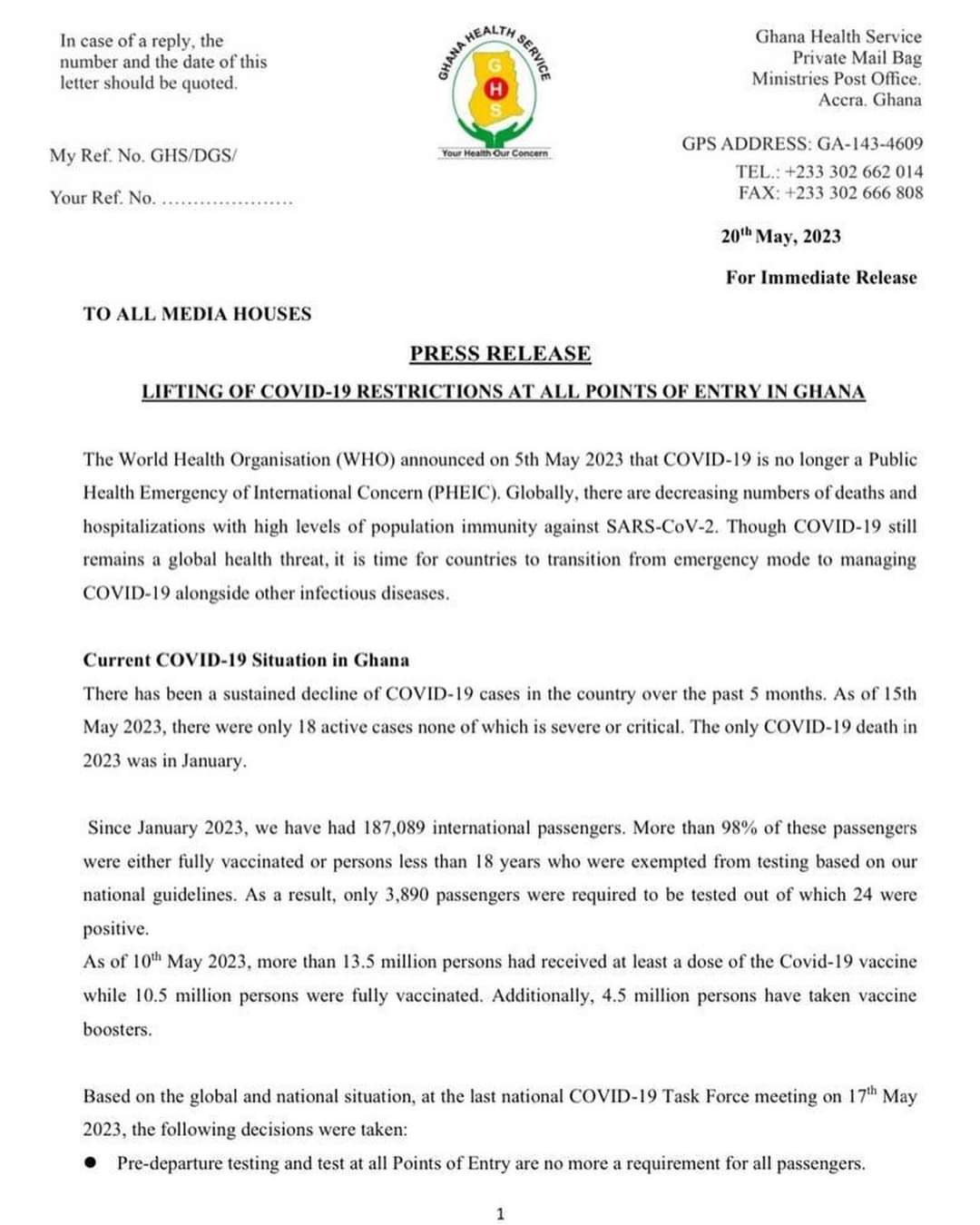
NDC’s SA executive berates NPP for jubilating over IMF deal
Mahama mourns with late kumawu mp’s family, related posts.

There’s no need for a Bill to protect Free SHS policy – Nortsu-Kotoe

Election 2024: Avoid incendiary statements – Afenyo-Markin to colleagues

Election 2024: NDC not an option; they are dangerous – Ken Agyapong

Election 2024: I’ll be more accountable than Mahama – Bawumia
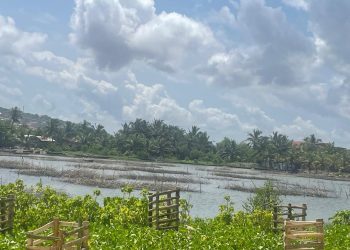
Fishing in Tsokome: Community leaders, fisherfolk urge govt to dredge river

Health CSOs to protest over locked drugs at port

Mahama mourns with late Kumawu MP's family
Top stories.

CitiNewsroom.com is Ghana's leading news website that delivers high quality innovative, alternative news that challenges the status quo.
Download App

© 2024 All Rights Reserved Citi Newsroom .
Privacy Overview
We’re sorry, this site is currently experiencing technical difficulties. Please try again in a few moments. Exception: request blocked
Cookies on GOV.UK
We use some essential cookies to make this website work.
We’d like to set additional cookies to understand how you use GOV.UK, remember your settings and improve government services.
We also use cookies set by other sites to help us deliver content from their services.
You have accepted additional cookies. You can change your cookie settings at any time.
You have rejected additional cookies. You can change your cookie settings at any time.
Register to vote Register by 18 June to vote in the General Election on 4 July.
- Passports, travel and living abroad
- Travel abroad
- Foreign travel advice
Warnings and insurance
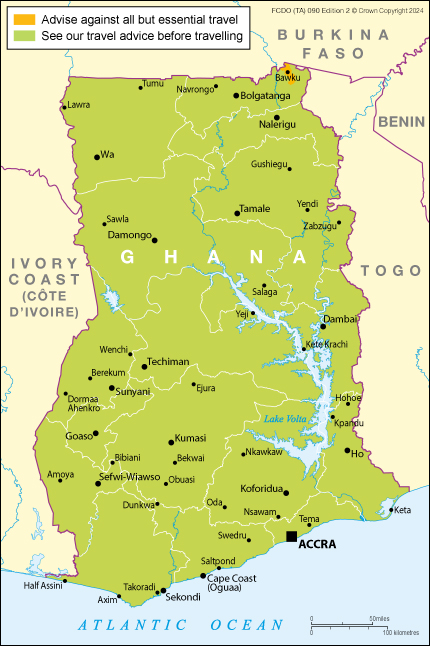
Your travel insurance could be invalidated if you travel against advice from the Foreign, Commonwealth and Development Office (FCDO).
Areas where FCDO advises against all but essential travel
Bawku municipality.
FCDO advises against all but essential travel to the Bawku Municipal area in the Upper East region of Ghana.
Find out why FCDO advises against travel to Bawku Municipality .
Before you travel
No travel can be guaranteed safe. Read all the advice in this guide and any specific travel advice that applies to you:
- women travellers
- disabled travellers
- LGBT+ travellers
- solo and independent travel
- volunteering and adventure travel
Travel insurance
If you choose to travel, research your destinations and get appropriate travel insurance . Insurance should cover your itinerary, planned activities and expenses in an emergency.
About FCDO travel advice
FCDO provides advice about risks of travel to help British nationals make informed decisions. Find out more about FCDO travel advice .
Follow and contact FCDO travel on Twitter , Facebook and Instagram . You can also sign up to get email notifications when this advice is updated.
Related content
Is this page useful.
- Yes this page is useful
- No this page is not useful
Help us improve GOV.UK
Don’t include personal or financial information like your National Insurance number or credit card details.
To help us improve GOV.UK, we’d like to know more about your visit today. Please fill in this survey (opens in a new tab) .

Search Smartraveller

Latest update
Exercise a high degree of caution in Ghana overall due to the threat of crime.
Higher levels apply in some areas.
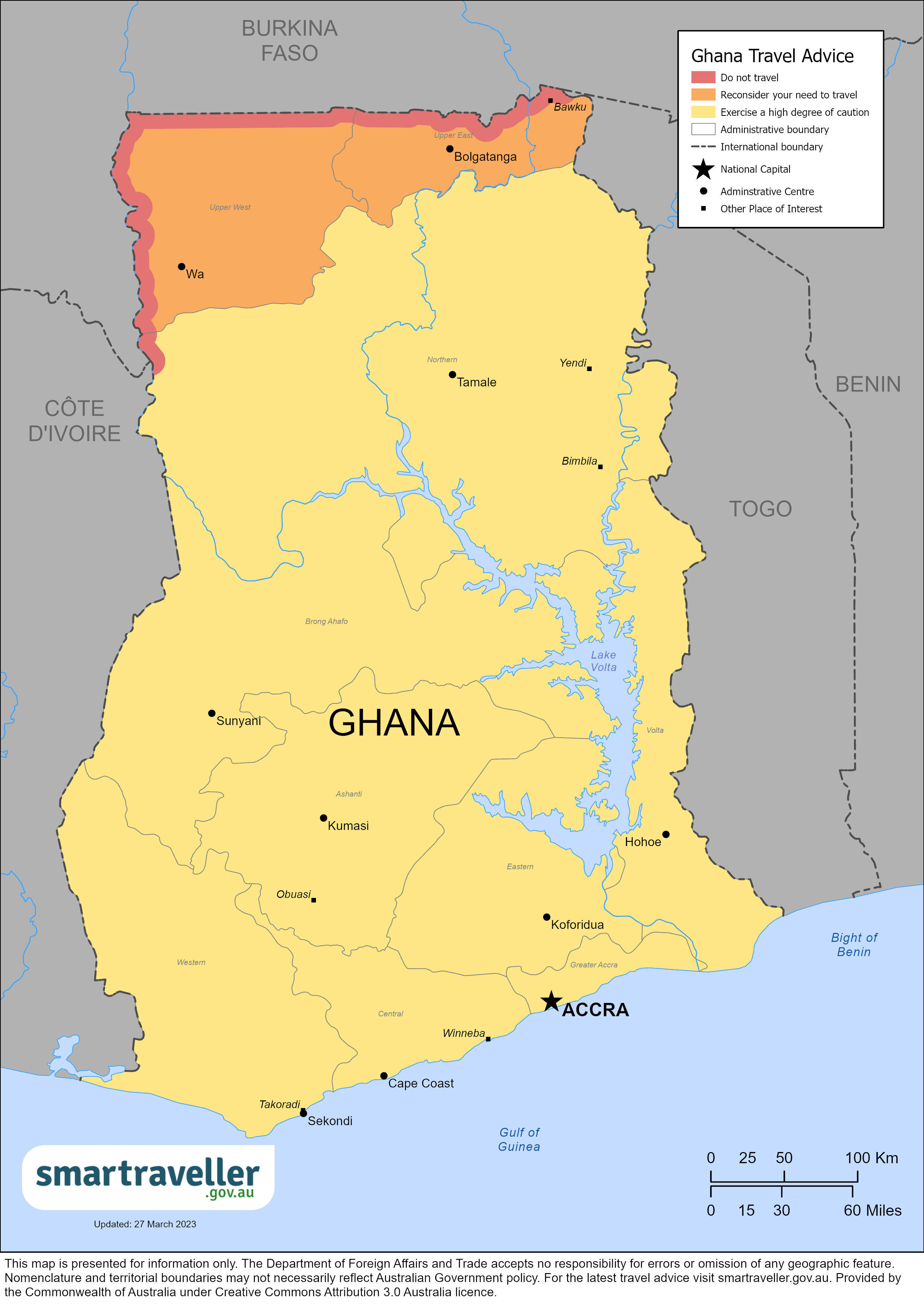
Ghana (PDF 253.16 KB)
Africa (PDF 1.68 MB)
Local emergency contacts
Fire and rescue services, medical emergencies.
Call 193 or go to the hospital.
Call 191 or go to the nearest police station.
Advice levels
Exercise a high degree of caution in Ghana overall.
Do not travel to the northern border with Burkina Faso.
Do not travel to the northern border with Burkina Faso due to the threat of attacks and kidnapping from terrorists and other groups active in Burkina Faso.
See Safety .
Reconsider your need to travel to the Upper East and Upper West regions.
Reconsider your need to travel to the Upper East and Upper West regions due to the heightened risk of terrorist attacks in Ghana’s northern border areas and the ongoing chieftaincy conflict in Bawku.
- There's been an increase in reported incidents of banditry involving passenger buses travelling in the Upper West and Upper East regions resulting in injuries and deaths. In July 2023, a passenger bus travelling from Kumasi to Bawku was attacked at a fuel station in Walewale resulting in several injuries.
- If you're travelling to Ghana, you could be a target for crime, including kidnapping and robbery. There are increased security risks if you're a woman travelling alone. Take particular care in and around Accra.
- Avoid demonstrations and protests. Large public events and intercommunity disputes can turn violent. Be cautious around large crowds, like football matches.
- Internet scams often originate in West African countries. Criminals may ask for details of safe bank accounts to transfer large amounts of money. Criminals often meet their victims through internet dating sites or chat rooms. Be wary of online contact from people you don't know. Don't send money until you've checked who you're sending it to. Don't travel to Ghana to get your money back or to get revenge.
Power outages may occur after dark. This often leads to more crime, especially if street and traffic lights fail.
- Officials or people posing as officials may try to extort money from foreigners, including at the airport. Legitimate airport staff wear a current ID card with their name and photograph.
Full travel advice: Safety
- Yellow fever, malaria and other insect-borne diseases are common, as are waterborne, foodborne and other infectious diseases, such as cholera, hepatitis , lassa fever, meningococcal meningitis, bilharzia and tuberculosis. Avoid insect bites, ice cubes, and raw or undercooked food. Drink boiled or bottled water. Consider what vaccinations and medicine you need.
- Lassa fever may be a risk when you have contact with rodents or with food or household items contaminated with rodent droppings.
- HIV/AIDS is common in Ghana. Take precautions if you're engaging in high-risk activities.
- If there is a serious outbreak of infectious disease, follow the advice of local authorities.
- Medical and emergency services are very limited. You may need to pay cash up front, even in an emergency. Make sure you have the right insurance and enough money to cover all your costs.
Full travel advice: Health
- Penalties for drug offences are severe. They include mandatory jail terms.
The death penalty can apply for serious offences, such as murder.
- Same-sex activity is illegal and could lead to prison sentences. LGBTI relationships and identities are interpreted as illegal by society. Violence, threats, extortion, eviction and arbitrary arrest of LGBTI people occur, and the debate around an anti-LGBTI bill has increased these risks to the LGBTI community. LGBTI travellers should consider travel plans and personal security carefully.
- Other activities that are legal in Australia are illegal in Ghana.
- Ghana recognises dual nationality. Always travel on your Australian passport.
Full travel advice: Local laws
- You need a visa to travel to Ghana. If you're staying for more than 90 days in 12 months, you must register for a National Identification Authority Non-citizen Ghana card . Entry and exit conditions can change at short notice. You should contact the nearest high commission/embassy or consulate of Ghana for the latest details.
- You need to show a valid yellow fever vaccination certificate and proof of full vaccination against COVID-19 to enter Ghana. You may also need to show it when you leave.
- There's increased reporting of incidents involving passenger buses travelling in the Upper West and Upper East regions resulting in injuries and deaths. In July a passenger bus travelling from Kumasi to Bawku was attacked at a fuel station in Walewale resulting in several injuries.
- Road safety and driving in Ghana can be dangerous. Police roadblocks are common. Carry photo ID, vehicle registration and ownership papers. Be alert to hazards, especially at night. Only use registered taxis and limousines. Arrange these through your hotel. Due to safety and security concerns, don't use public transport or taxis hailed on the street.
Full travel advice: Travel
Local contacts
- The Consular Services Charter tells you what the Australian government can and can't do to help when you're overseas.
- For consular help, contact the Australian High Commission, Accra .
- To stay up to date with local information, follow the High Commission’s social media accounts.
Full travel advice: Local contacts
Full advice
If you're travelling to Ghana, you could be a target for:
- bag snatching
- petty theft
- pickpocketing
Your risk increases if you're a woman travelling alone. Take particular care in and around Accra.
Some taxi passengers have been robbed by drivers.
Attacks on passengers in vehicles are also on the increase. Take particular care when stationary. Keep windows up and doors locked. Some of these attacks on vehicles also involve the use of weapons.
Criminals may also target you in:
- house invasions
- armed robbery (including in a taxi)
- other violent crimes
Officials or people posing as officials may try to detain foreigners or extort money from them, including at the airport.
Legitimate airport staff wear a current ID card with their name and photograph.
To protect yourself from crime:
- only use registered taxis or limousines, arrange these through your hotel.
- don't use taxis hailed on the street or other public transport
- don't walk alone, particularly in the evening and at night
- avoid travelling alone, especially if you're a woman
- keep your car windows up and doors locked, even when moving
- be alert when approaching traffic lights
- lock your accommodation, including when you're inside
Scams and fraud
Internet scams come in many forms, including romance, friendship, business and employment opportunities. These scams often originate in West African countries.
If you travel to West Africa as a scam victim, you're at risk of:
- financial loss
This includes travelling to meet a friend or love interest, as well as looking for compensation or revenge.
Common fraud schemes fall into two main categories — commercial and relationship scams.
In commercial scams, criminals ask for details of 'safe' bank accounts to transfer large amounts of money. They may:
- promise a percentage of this amount to you
- send fake cashier cheques for urgent goods shipments
- request large fees for a fake government contract
- extort money from you for a bogus business opportunity
In relationship scams, criminals often meet their victims through internet dating sites, chat rooms or social media. Once they've made a connection with you, they may:
- ask you to send money so they can come to Australia
- ask you to come to Africa to meet them
Once you transfer money, the relationship often ends. If you travel to Africa to meet the criminals, you may be in danger.
To protect yourself from scams:
- be wary of online contact from people you don't know
- don't send money to anyone until you've thoroughly checked details about them
If you suspect a scam, get legal advice.
Don't travel to Ghana to get your money back or to get revenge. You could be in danger.
Cyber security
You may be at risk of cyber-based threats during overseas travel to any country. Digital identity theft is a growing concern. Your devices and personal data can be compromised, especially if you’re connecting to Wi-Fi, using or connecting to shared or public computers, or to Bluetooth.
Social media can also be risky in destinations where there are social or political tensions, or laws that may seem unreasonable by Australian standards. Travellers have been arrested for things they have said on social media. Don't comment on local or political events on your social media.
More information:
Cyber security when travelling overseas
Civil unrest and political tension
Chieftaincy conflicts, land disputes and political tension can lead to localised inter-ethnic violence and civil unrest throughout Ghana, especially in Upper West and Upper East Regions.
Due to the ongoing chieftaincy conflict in Bawku, there's an increased risk of politically motivated attacks in the Upper West and Upper East Regions.
There's been an increase in reported incidents of banditry involving passenger buses travelling in the Upper West and Upper East regions resulting in injuries and deaths.
In July 2023, a passenger bus travelling from Kumasi to Bawku was attacked at a fuel station in Walewale, resulting in several injuries.
Pay attention to your personal safety and surroundings.
Be cautious around large public gatherings like football matches.
Disputes involving local ethnic groups can also turn violent.
Demonstrations and protests
Public protests and events that draw large groups of people can turn violent.
When you're in Ghana:
- avoid protests, rallies and demonstrations
- if you encounter a protest or unrest, leave if it's safe to do so
- monitor the media for reports of unrest, and avoid those areas
- follow the advice of local authorities
Demonstrations and civil unrest
Terrorism is a threat worldwide. This includes in Ghana. There's a heightened risk of terrorist attacks in the northern areas of Ghana bordering Côte d’Ivoire, Togo and particularly Burkina Faso, where terrorists, other armed groups and militias are active.
To protect yourself from being involved in a terrorist attack:
- be alert to possible threats, especially in public places
- report any suspicious activity or items to police
- monitor the media for possible threats
- take official warnings seriously
Criminals increasingly target Westerners, especially women, for violent crime. This includes kidnapping .
If you're in northern Ghana, including the Upper West and Upper East regions, you may be targeted for kidnapping for ransom. You should exercise a high degree of caution in these regions.
To protect yourself from kidnapping:
- be particularly alert at night
- vary travel routes and times, particularly your usual running and walking routes
In June 2019, two foreigners were kidnapped in Kumasi.
Climate and natural disasters
Ghana experiences natural disasters and severe weather , including flooding.
If there's a natural disaster or severe weather:
- secure your passport in a safe, waterproof location
- keep in contact friends and family
Register with the Global Disaster Alert and Coordination System for alerts.
The wet season is from May to October.
Flooding may happen in the:
- Northern region
- Upper East region
- Upper West region
Roads can shut quickly, stranding travellers.
If you travel during the wet season or after a natural disaster, check if services at your planned destination have been affected.
Travel insurance
Get comprehensive travel insurance before you leave. Your policy needs to cover all overseas medical costs, including medical evacuation. The Australian Government won't pay for these costs.
If you can't afford travel insurance, you can't afford to travel. This applies to everyone, no matter how healthy and fit you are.
If you're not insured, you may have to pay many thousands of dollars up-front for medical care.
- what activities and care your policy covers
- that your insurance covers you for the whole time you'll be away.
Physical and mental health
Consider your physical and mental health before you travel, especially if you have an existing medical condition.
See your doctor or travel clinic to:
- have a basic health check-up
- ask if your travel plans may affect your health
- plan any vaccinations you need.
Do this at least eight weeks before you leave.
If you have immediate concerns for your welfare, or the welfare of another Australian, call the 24-hour Consular Emergency Centre on +61 2 6261 3305 or contact your nearest Australian Embassy, High Commission or Consulate to discuss counselling hotlines and services available in your location.
- General health advice
- Healthy holiday tips (Healthdirect Australia)
Not all medication available over the counter or by prescription in Australia is available in other countries. Some may even be considered illegal or a controlled substance, even if prescribed by an Australian doctor.
If you plan to bring medication, check if it's legal in Ghana. Take enough legal medication for your trip.
Carry a copy of your prescription or a letter from your doctor stating:
- what the medication is, including its generic name
- your required dosage
- that it's for personal use.
Health risks
Insect-borne diseases.
Yellow fever is common in Ghana. Yellow fever is a potentially fatal virus spread by mosquitoes. It's prevented by vaccination. Get vaccinated before you travel.
Malaria and other insect-borne diseases are also common.
To protect yourself from disease:
- make sure your accommodation is insect-proof
- use treated mosquito nets
- use insect repellent
- wear long, loose, light-coloured clothes
- consider taking medicine to prevent malaria
Get medical advice if you have a fever, muscle pain, rash or severe headache.
HIV/AIDS is common in Ghana. Take precautions if taking part in activities that put you at risk of infection.
Lassa fever
Lassa fever may be a risk when you have contact with rodents or with food or household items contaminated with rodent droppings.
- avoid contact with live or dead rodents, burrows or nests and their droppings
- ensure all foods are well-cooked and covered in rodent-proof containers
- keep your body, personal belongings, utensils and common contact surfaces (including door knobs and counters) clean
- avoid places where dust is raised, such as from sweeping and vacuuming rodent droppings
- avoid contact with infected people, body fluids and infected items
Get immediate medical help if you develop any symptoms of Lassa fever, including a fever, weakness in your body or unexplained pain.
Other health risks
Waterborne, foodborne, parasitic and other infectious diseases are common, including these listed by the World Health Organization:
- bilharzia (schistosomiasis)
- meningococcal meningitis
- tuberculosis
Serious outbreaks sometimes occur.
To protect yourself from illness:
- drink boiled water or bottled water with sealed lids
- avoid ice cubes
- avoid raw and undercooked food, such as salads
- don't swim in fresh water
Get medical advice if you have a fever or diarrhoea.
Get medical attention straight away if an animal scratches or bites you.
Medical care
Medical facilities in urban areas are basic.
In rural areas, facilities are limited. The standard of care may be less than what you would expect in Australia.
You may need to pay cash upfront before doctors and hospitals will treat you, even in an emergency.
If you're seriously ill or injured, you may need to be moved to a place with better facilities. Medical evacuation can be very expensive.
Local health services may have difficulty responding to outbreaks of infectious disease.
You're subject to all local laws and penalties, including those that may appear harsh by Australian standards. Research local laws before travelling.
If you're arrested or jailed, the Australian Government will do what it can to help you under our Consular Services Charter . But we can't get you out of trouble or out of jail.
Penalties for drug offences are severe. This includes mandatory jail terms.
Carrying or using drugs
LGBTI is not formally illegal in Ghana. Same-sex activity is illegal and could lead to prison sentences. LGBTI relationships and identities are interpreted as illegal by society.
Violence, threats, extortion, eviction and arbitrary arrest of LGBTI people occur, and the debate around an anti-LGBTI bill has increased these risks to the LBGTI community. LGBTI travellers should consider travel plans and personal security carefully.
It's also illegal to:
- carry pornographic material
- wear military style or camouflage clothes
- take photos near government buildings or infrastructure, such as oil fields
- import or export natural resources such as gold, diamonds and precious metals without a licence from the Precious Metals and Mining Commission
More information :
Advice for LGBTI travellers
Australian laws
Some Australian criminal laws still apply when you're overseas. If you break these laws, you may face prosecution in Australia.
Staying within the law and respecting customs
Dual citizenship
Ghana recognises dual nationality.
Always travel on your Australian passport .
Travelling on your Ghanaian passport may affect your rights and responsibilities, including:
- civil service
- military service
- access to Australian consular services if you're arrested or detained.
Check with the High Commission of Ghana before you travel.
You can get a dual nationality card from the Ghana Ministry of Interior.
Dual nationals
Local customs
Standards of dress and behaviour are conservative.
Check with locals. Take care to not offend.
Visas and border measures
Every country or territory decides who can enter or leave through its borders. For specific information about the evidence you'll need to enter a foreign destination, check with the nearest embassy, consulate or immigration department of the destination you're entering.
Visa conditions
You'll need a visa to travel to Ghana.
Entry and exit conditions can change at short notice. Contact an embassy or high commission of Ghana for details about visas, currency, customs and quarantine rules.
Border measures
You need to show a valid yellow fever vaccination certificate. You may need to provide proof of full vaccination against COVID-19 when you arrive.
Measures are frequently reviewed and may change at short notice. Check the Kotoka International Airport website for details.
Other formalities
Yellow fever vaccination.
You need to carry a valid yellow fever vaccination certificate to enter Ghana. You may be asked to show your certificate when arrive and when you leave by airport officials. See ' Health '.
You may need a valid yellow fever vaccination certificate to travel to other countries after visiting Ghana.
Find out about returning to Australia after exposure to yellow fever (Department of Health).
Countries with a risk of yellow fever
If you'll stay in Ghana for more than 90 days in a year, you must register for a National Identification Authority Non-citizen Ghanacard . You'll need this for ID checks on some transactions.
Some countries won't let you enter unless your passport is valid for six months after you plan to leave that country. This can apply even if you're just transiting or stopping over.
Some foreign governments and airlines apply the rule inconsistently. Travellers can receive conflicting advice from different sources.
You can end up stranded if your passport is not valid for more than six months.
The Australian Government does not set these rules. Check your passport's expiry date before you travel. If you're not sure it'll be valid for long enough, consider getting a new passport .
Lost or stolen passport
Your passport is a valuable document. It's attractive to people who may try to use your identity to commit crimes.
Some people may try to trick you into giving them your passport. Always keep it in a safe place.
If your passport is lost or stolen, tell the Australian Government as soon as possible:
- In Australia, contact the Australian Passport Information Service .
- If you're overseas, contact the nearest Australian embassy or consulate .
Passport with ‘X’ gender identifier
Although Australian passports comply with international standards for sex and gender, we can’t guarantee that a passport showing 'X' in the sex field will be accepted for entry or transit by another country. Contact the nearest embassy, high commission or consulate of your destination before you arrive at the border to confirm if authorities will accept passports with 'X' gender markers.
- LGBTI travellers
Money facilities
The local currency is the Ghanaian Cedi (GHS).
Declare all GHS or other currency when you arrive in Ghana. This covers all forms of currency, not only cash.
You can't exchange Australian dollars in Ghana. However, you can easily exchange US dollars and euros for GHS at commercial banks and exchange services.
Larger towns have ATMs. Banks and businesses may not accept credit cards other than Visa.
Credit card fraud is common.
To ensure your access to money:
- always keep an eye on your credit card, even when you're using it
- contact your bank to make sure your cards will work
Local travel
Border areas often see higher criminal activity and violence.
Chieftaincy disputes and political tension can sometimes lead to localized violence and unrest across Ghana.
There have been an increasing number of reported incidents of banditry involving passenger buses travelling in the Upper West and Upper East regions resulting in injuries and deaths.
In July 2023, a passenger bus travelling from Kumasi to Bawku was attacked at a fuel station in Walewale resulting in several injuries.
There are security risks with using public transport . See Safety
Driving permits
You can drive in Ghana for 12 months with:
- a valid Australian driver's licence
- an International Driving Permit (IDP)
You must be over 18 years old.
After 12 months, you'll need a local licence.
Australian High Commission in Accra
Road travel
Road safety and driving in Ghana can be dangerous, due to:
- poorly maintained roads and vehicles
- aggressive driving
- poor street lighting
- roaming animals
- pedestrians and cyclists
These risks increase at night and in rural areas.
Police roadblocks are common. You may need to show:
- identity documents
- vehicle registration
- ownership papers
During the wet season, flooding can make roads impassable.
Crowds can quickly gather at the scene of traffic accidents and become aggressive.
To stay safe on the road:
- understand local traffic laws and practices
- carry photo ID, vehicle registration and ownership papers
- be alert to hazards, especially at night
- get local advice on road conditions, especially during the wet season
- always keep car windows up, doors locked and valuables out of sight
- be wary of people who may try to stop your vehicle
If you're in an accident, go to the nearest police station.
Motorcycles
Your travel insurance policy may not cover you for accidents while driving a motorbike or quad bike. Check before you drive.
Always wear a helmet.
Only use registered taxis and limousines. If you can, arrange these through your hotel.
There are security risks with using unregistered taxis and rideshare services.
Take care when travelling alone at night. See Safety

Public transport
Public transport is limited.
Safety and maintenance standards can be unreliable.
There are security risks with using public transport . See Safety
Ferry travel is risky due to generally low safety standards and adverse weather.
There may be too many passengers and not enough life jackets. Always wear a life jacket, even if others don't.
Pirates operate in the coastal areas of Ghana. Check piracy reports with the International Maritime Bureau .
Travelling by boat
DFAT doesn't provide information on the safety of individual commercial airlines or flight paths.
Check Ghana's air safety profile with the Aviation Safety Network.
Emergencies
Depending on what you need, contact your:
- family and friends
- travel agent
- insurance provider
Other numbers for the police are:
- (0302) 77 36 95
- (0302) 77 39 06
- (0302) 78 73 73
Always get a police report when you report a crime.
Your insurer should have a 24-hour emergency number.
Consular contacts
Read the Consular Services Charter for what the Australian Government can and can't do to help you overseas.
Australian High Commission, Accra
2, Second Rangoon Close (cnr Josef Broz Tito Ave) Cantonments Accra, Ghana Phone: (+233) 302 216 400 Fax: (+233) 302 216 410 Email: [email protected] Website: ghana.highcommission.gov.au Facebook: Australian High Commission, Ghana Twitter: @AusAmbGHA
See the High Commission website for details about opening hours and any temporary closures.
24-hour Consular Emergency Centre
In a consular emergency, if you can't contact an embassy, call the 24-hour Consular Emergency Centre on:
- +61 2 6261 3305 outside Australia
- 1300 555 135 in Australia

Travelling to Ghana?
Sign up to get the latest travel advice updates..
Be the first to know official government advice when travelling.
Security Alert May 17, 2024
Worldwide caution, update may 10, 2024, information for u.s. citizens in the middle east.
- Travel Advisories |
- Contact Us |
- MyTravelGov |
Find U.S. Embassies & Consulates
Travel.state.gov, congressional liaison, special issuance agency, u.s. passports, international travel, intercountry adoption, international parental child abduction, records and authentications, popular links, travel advisories, mytravelgov, stay connected, legal resources, legal information, info for u.s. law enforcement, replace or certify documents.
Travel.State.Gov Newsroom
U.S. Passports News
International Travel News
U.S. Visas News
Intercountry Adoption News and Notices
Share this page:
Update on Change to U.S. Travel Policy Requiring COVID-19 Vaccination for nonimmigrant travel
Worldwide Visa Operations: Update
Employment-Based Fourth Preference (EB-4) Announcement
Suspension of Visa Services in Sudan
Diversity Visa 2024 Update
Nonimmigrant Visa Fee Increases to Take Effect June 17, 2023
India EB-3 Retrogression
Expiration of Covid-Era Visa Application Fee Receipts
Digital Visa Authorization (DVA) Proof of Concept
Final Rule Governing Public Charge Grounds of Visa Ineligibility
Visa Waiver Travel for Israeli Citizens
Important Update on Waivers of the Interview Requirement for Certain Nonimmigrant Visa Applicants
Department of State to Process Domestic Visa Renewals in Limited Pilot Program
Visa Information for Nationals of Haiti
Department of State/AILA Liaison Committee Meeting March 20, 2024
The Secretary of State, following consultations with the Department of Homeland Security, has determined that the following categories of interview waivers are in the national interest. Changes based on that determination are implemented by consular officers, who now have the authority and discretion to waive the in-person interview for:
- First time H-2 visa applicants (temporary agricultural and non-agricultural workers); and
- Were previously issued a nonimmigrant visa in any classification, unless the only prior issued visa was a B visa; and
- Are applying within 48 months of their most recent nonimmigrant visa’s expiration date.
In all cases, applicants must meet certain legal requirements to qualify for an interview waiver. Implementation of this authority begins January 1, 2024, and will be reviewed annually. This authority is in place until further notice.
As a reminder, applicants renewing a nonimmigrant visa in the same classification within 48 months of the prior visa’s expiration date continue to be eligible for interview waiver until further notice.
To be eligible for an interview waiver, applicants must also meet certain criteria, including that they:
- apply in their country of nationality or residence.
- have never been refused a visa (unless such refusal was overcome or waived).
- have no apparent or potential ineligibility.
Consular officers may still require in-person interviews on a case-by-case basis or because of local conditions. We encourage applicants to check embassy and consulate websites for more detailed information about visa application requirements and procedures, and to learn more about the embassy’s operating status and services.
External Link
You are about to leave travel.state.gov for an external website that is not maintained by the U.S. Department of State.
Links to external websites are provided as a convenience and should not be construed as an endorsement by the U.S. Department of State of the views or products contained therein. If you wish to remain on travel.state.gov, click the "cancel" message.
You are about to visit:
You are using an outdated browser. Upgrade your browser today or install Google Chrome Frame to better experience this site.
- Section 2 - Interactions Between Travel Vaccines & Drugs
- Section 2 - Travelers’ Diarrhea
Yellow Fever Vaccine & Malaria Prevention Information, by Country
Cdc yellow book 2024.
Author(s): Mark Gershman, Rhett Stoney (Yellow Fever) Holly Biggs, Kathrine Tan (Malaria)
The following pages present country-specific information on yellow fever (YF) vaccine requirements and recommendations, and malaria transmission information and prevention recommendations. Country-specific maps are included to aid in interpreting the information. The information in this chapter was accurate at the time of publication; however, it is subject to change at any time due to changes in disease transmission or, in the case of YF, changing entry requirements for travelers. Updated information reflecting changes since publication can be found in the online version of this book and on the Centers for Disease Control and Prevention (CDC) Travelers’ Health website. Recommendations for prevention of other travel-associated illnesses can also be found on the CDC Travelers’ Health website .
Yellow Fever Vaccine
Entry requirements.
Entry requirements for proof of YF vaccination under the International Health Regulations (IHR) differ from CDC’s YF vaccination recommendations. Under the IHR, countries are permitted to establish YF vaccine entry requirements to prevent the importation and transmission of YF virus within their boundaries. Certain countries require proof of vaccination from travelers arriving from all countries ( Table 5-25 ); some countries require proof of vaccination only for travelers above a certain age coming from countries with risk for YF virus transmission. The World Health Organization (WHO) defines areas with risk for YF virus transmission as countries or areas where YF virus activity has been reported currently or in the past, and where vectors and animal reservoirs exist.
Unless issued a medical waiver by a yellow fever vaccine provider, travelers must comply with entry requirements for proof of vaccination against YF.
WHO publishes a list of YF vaccine country entry requirements and recommendations for international travelers approximately annually. But because entry requirements are subject to change at any time, health care professionals and travelers should refer to the online version of this book and the CDC Travelers’ Health website for any updates before departure.
CDC Recommendations
CDC’s YF vaccine recommendations are guidance intended to protect travelers from acquiring YF virus infections during international travel. These recommendations are based on a classification system for destination-specific risk for YF virus transmission: endemic, transitional, low potential for exposure, and no risk ( Table 2-08 ). CDC recommends YF vaccination for travel to areas classified as having endemic or transitional risk (Maps 5-10 and 5-11 ). Because of changes in YF virus circulation, however, recommendations can change; therefore, before departure, travelers and clinicians should check CDC’s destination pages for up-to-date YF vaccine information.
Duration of Protection
In 2015, the US Advisory Committee on Immunization Practices published a recommendation that 1 dose of YF vaccine provides long-lasting protection and is adequate for most travelers. The recommendation also identifies specific groups of travelers who should receive additional doses, and others for whom additional doses should be considered (see Sec. 5, Part 2, Ch. 26, Yellow Fever ). In July 2016, WHO officially amended the IHR to stipulate that a completed International Certificate of Vaccination or Prophylaxis is valid for the lifetime of the vaccinee, and YF vaccine booster doses are not necessary. Moreover, countries cannot require proof of revaccination (booster) against YF as a condition of entry, even if the traveler’s last vaccination was >10 years ago.
Ultimately, when deciding whether to vaccinate travelers, clinicians should take into account destination-specific risks for YF virus infection, and individual risk factors (e.g., age, immune status) for serious YF vaccine–associated adverse events, in the context of the entry requirements. See Sec. 5, Part 2, Ch. 26, Yellow Fever , for a full discussion of YF disease and vaccination guidance.
Table 2-08 Yellow fever (YF) vaccine recommendation categories 1
Malaria prevention.
The following recommendations to protect travelers from malaria were developed using the best available data from multiple sources. Countries are not required to submit malaria surveillance data to CDC. On an ongoing basis, CDC actively solicits data from multiple sources, including WHO (main and regional offices); national malaria control programs; international organizations; CDC overseas offices; US military; academic, research, and aid organizations; and the published scientific literature. The reliability and accuracy of those data are also assessed.
If the information is available, trends in malaria incidence and other data are considered in the context of malaria control activities within a given country or other mitigating factors (e.g., natural disasters, wars, the coronavirus disease 2019 pandemic) that can affect the ability to control malaria or accurately count and report it. Factors such as the volume of travel to that country and the number of acquired cases reported in the US surveillance system are also examined. In developing its recommendations, CDC considers areas within countries where malaria transmission occurs, substantial occurrences of antimalarial drug resistance, the proportions of species present, and the available malaria prophylaxis options.
Clinicians should use these recommendations in conjunction with an individual risk assessment and consider not only the destination but also the detailed itinerary, including specific cities, types of accommodations, season, and style of travel, as well as special health conditions (e.g., pregnancy). Several medications are available for malaria prophylaxis. When deciding which drug to use, consider the itinerary and length of trip, travelers’ previous adverse reactions to antimalarials, drug allergies, medical history, and drug costs. For a thorough discussion of malaria and guidance for prophylaxis, see Sec. 5, Part 3, Ch. 16, Malaria .
Afghanistan
Entry requirements : None
CDC recommendations : Not recommended
- All areas <2,500 m (≈8,200 ft) elevation (April–December)
- Chloroquine
- P. vivax (primarily)
- P. falciparum (less commonly)
- Atovaquone-proguanil, doxycycline, mefloquine, tafenoquine 3
Other Vaccines to Consider
See Health Information for Travelers to Afghanistan
Entry requirements : Required for travelers ≥1 year old arriving from countries with risk for YF virus transmission 1
No malaria transmission
See Health Information for Travelers to Albania
Entry requirements : Required for travelers ≥9 months old arriving from countries with risk for YF virus transmission; this includes >12-hour airport transits or layovers in countries with risk for YF virus transmission. 1
See Health Information for Travelers to Algeria
American Samoa (US)
See Health Information for Travelers to American Samoa
See Health Information for Travelers to Andorra
Entry requirements : Required for arriving travelers ≥9 months old
CDC recommendations : Recommended for all travelers ≥9 months old
- P. falciparum (primarily)
- P. malariae , P. ovale , and P. vivax (less commonly)
See Health Information for Travelers to Angola
Anguilla (U.K.)
See Health Information for Travelers to Anguilla (U.K.)
See Health Information for Travelers to Antarctica
Antigua and Barbuda
Entry requirements : Required for travelers ≥1 year old arriving from countries with risk for YF virus transmission this includes >12-hour airport transits or layovers in countries with risk for YF virus transmission. 1
See Health Information for Travelers to Antigua and Barbuda
CDC recommendations : Recommended for travelers ≥9 months old going to Corrientes and Misiones Provinces. Generally not recommended for travel to Formosa Province or to designated areas of Chaco, Jujuy, and Salta Provinces. Not recommended for travel limited to provinces and areas not listed above.
Related Maps
Map 2-01 Yellow fever vaccine recommendations for Argentina & neighboring countries
See Health Information for Travelers to Argentina
See Health Information for Travelers to Armenia
Entry requirements : Required for travelers ≥9 months old arriving from countries with risk for YF virus transmission; this includes >12-hour airport transits or layovers in countries with risk for YF virus transmission. 1 Entry will be denied if a valid vaccination certificate cannot be provided.
See Health Information for Travelers to Aruba
Entry requirements : Required for travelers ≥1 year old arriving from countries with risk for YF virus transmission; this includes >12-hour airport transits or layovers in countries with risk for YF virus transmission. 1 Travelers arriving from the Galápagos Islands of Ecuador are exempt from this requirement.
See Health Information for Travelers to Australia
See Health Information for Travelers to Austria
See Health Information for Travelers to Azerbaijan
Azores (Portugal)
See Health Information for Travelers to Azores
Bahamas, The
Entry requirements : Required for travelers ≥1 year old arriving from countries with risk for YF virus transmission; this includes >12-hour airport transits or layovers in countries with risk for YF virus transmission. 1
See Health Information for Travelers to The Bahamas
See Health Information for Travelers to Bahrain
Entry requirements : Required for travelers ≥1 year old arriving from countries with risk for YF virus transmission; this includes airport transits or layovers in countries with risk for YF virus transmission. 1
- Districts of Chittagong Hill Tract (Bandarban, Khagrachari, and Rangamati); and the following districts: Chattogram (Chittagong) and Cox’s Bazar (in Chattogram [Chittagong] Division); Mymensingh, Netrakona, and Sherpur (in Mymensingh Division); Kurigram (in Rangpur Division); Habiganj, Moulvibazar, Sunamganj, and Sylhet (in Sylhet Division)
- No malaria transmission in Dhaka (the capital)
- P. falciparum (90%)
- P. vivax (10%)
- P. malariae (rare)
See Health Information for Travelers to Bangladesh
Entry requirements : Required for travelers ≥1 year old arriving from countries with risk for YF virus transmission. 1 Travelers arriving from Guyana or Trinidad & Tobago are exempt from this requirement, unless an outbreak is occurring.
See Health Information for Travelers to Barbados
See Health Information for Travelers to Belarus
See Health Information for Travelers to Belgium
- Rare transmission
- No malaria transmission in Belize City or on islands frequented by tourists (e.g., Ambergris Caye)
- P. vivax (primarily)
- None (insect bite precautions / mosquito avoidance only) 4
See Health Information for Travelers to Belize
Entry requirements : Required for all arriving travelers ≥9 months old
- P. falciparum (primarily)
- P. malariae , P. ovale, and P. vivax (less commonly)
See Health Information for Travelers to Benin
Bermuda (U.K.)
See Health Information for Travelers to Bermuda (U.K.)
- Rare cases in rural areas <1,700 m (≈5,500 ft) elevation in districts along the southern border shared with India
- P. falciparum (less commonly)
- None (insect bite precautions and mosquito avoidance only) 4
See Health Information for Travelers to Bhutan
Entry requirements : Required for travelers ≥1 year old arriving from countries with risk for YF virus transmission. 1
CDC recommendations : Recommended for travelers ≥9 months old going to areas <2,300 m (≈7,550 ft) elevation, east of the Andes Mountains: the entire departments of Beni, Pando, Santa Cruz, and designated areas in the departments of Chuquisaca, Cochabamba, La Paz, and Tarija. Not recommended for travel limited to areas >2,300 m (≈7,550 ft) elevation and any areas not listed above, including the cities of La Paz (administrative capital) and Sucre (constitutional [legislative and judicial] capital).
- All areas <2,500 m (≈8,200 ft) elevation
- No malaria transmission in La Paz (administrative capital)
- P. vivax (99%)
- P. falciparum (1%)
- Atovaquone-proguanil, doxycycline, mefloquine, primaquine 5 , tafenoquine 3
Map 2-02. Yellow fever vaccine recommendations for Bolivia & neighboring countries
See Health Information for Travelers to Bolivia
See Health Information for Travelers to Bonaire
Bosnia and Herzegovina
See Health Information for Travelers to Bosnia and Herzegovina
Entry requirements : Required for travelers ≥1 year old arriving from countries with risk for YF virus transmission; this includes transits through countries with risk for YF virus transmission. 1
- Districts/ subdistricts of Bobirwa, Boteti, Chobe (including Chobe National Park), Ghanzi, Mahalapye, Ngamiland (Ngami), North East (including its capital, Francistown), Okavango, Serowe/ Palapye, and Tutume
- Rare cases or sporadic foci of transmission in districts/ subdistricts of Kgalagadi North, Kgatleng, Kweneng, and Southern
- No malaria transmission in Gaborone (the capital)
- P. malariae , P. ovale , and P. vivax (less commonly)
- Districts/subdistricts of Bobirwa, Boteti, Chobe (including Chobe National Park), Ghanzi, Mahalapye, Ngamiland (Ngami), North-East (including its capital, Francistown), Okavango, Serowe/Palapye, and Tutume: Atovaquone-proguanil, doxycycline, mefloquine, tafenoquine 3
- Areas with rare cases or sporadic foci of transmission: no chemoprophylaxis recommended (insect bite precautions and mosquito avoidance only) 4
See Health Information for Travelers to Botswana
CDC recommendations : Recommended for travelers ≥9 months old going to the states of Acre, Amapá, Amazonas, Distrito Federal (including the capital city, Brasília), Espírito Santo,* Goiás, Maranhão, Mato Grosso, Mato Grosso do Sul, Minas Gerais, Pará, Paraná,* Piauí, Rio de Janeiro (including the city of Rio de Janeiro and all coastal islands),* Rio Grande do Sul,* Rondônia, Roraima, Santa Catarina,* São Paulo (including the city of São Paulo and all coastal islands),* Tocantins, and designated areas of Bahia*. Vaccination is also recommended for travelers going to Iguaçu Falls. Not recommended for travel limited to any areas not listed above, including the cities of Fortaleza and Recife *In 2017, in response to a large YF outbreak in multiple eastern states, CDC expanded its vaccination recommendations for travelers going to Brazil. The expanded YF vaccination recommendations for these states are preliminary. For updates, refer to the CDC Travelers’ Health website.
- All areas in the states of Acre, Amapá, Amazonas, Rondônia, and Roraima
- Present in the states of Maranhão, Mato Grosso, and Pará, but rare cases in their capital cities (São Luis [capital of Maranhão], Cuiabá [capital of Mato Grosso], Belém [capital of Pará])
- Rural and forested areas in the states of Espírito Santo, Goiás, Minas Gerais, Mato Grosso do Sul, Piauí, Rio de Janeiro, São Paolo, and Tocantins
- No malaria transmission in the cities of Brasília (the capital), Rio de Janeiro, or São Paolo
- No malaria transmission at Iguaçu Falls
- P. vivax (90%)
- P. falciparum (10%)
- Areas with rare cases: No chemoprophylaxis recommended (insect bite precautions and mosquito avoidance only) 4
- Map 2-03 Yellow fever vaccine recommendations for Brazil & neighboring countries
- Map 2-04 Malaria prevention in Brazil
See Health Information for Travelers to Brazil
British Indian Ocean Territory; includes Diego Garcia (U.K.)
See Health Information for Travelers to British Indian Ocean Territory (U.K.)
- No human malaria
- Rare transmission of P. knowlesi 6 in primarily forested or forest-fringe areas
- P. knowlesi 6 (100%)
- None (insect bite precautions and mosquito avoidance only) 4
See Health Information for Travelers to Brunei
See Health Information for Travelers to Bulgaria
Burkina Faso
Entry requirements : Required for all arriving travelers ≥9 months old
CDC recommendations : Recommended for all travelers ≥9 months old.
- P. malariae , P. ovale , and P. vivax (less commonly)
See Health Information for Travelers to Burkina Faso
Burma (Myanmar)
- All areas <1,000 m (≈3,300 ft) elevation, including Bagan
- Rare transmission in areas >1,000 m (≈3,300 ft) elevation
- Chloroquine and mefloquine
- P. vivax (60%)
- P. falciparum (40%)
- P. knowlesi 6 , P. malariae , and P. ovale (rare)
- Areas <1,000 m (≈3,300 ft) elevation in the regions of Bago and Tanintharyi, and in the states of Kachin, Kayah, Kayin, and Shan: Atovaquone-proguanil, doxycycline, tafenoquine 3
- Areas <1,000 m (≈3,300 ft) elevation in all other areas: Atovaquone-proguanil, doxycycline, mefloquine, tafenoquine 3
- Areas >1,000 m (≈3,300 ft) elevation: No chemoprophylaxis recommended (insect bite precautions and mosquito avoidance only) 4
See Health Information for Travelers to Burma (Myanmar)
Entry requirements : Required for all arriving travelers ≥9 months old.
CDC recommendations : Recommended for all travelers ≥9 months old.
See Health Information for Travelers to Burundi
- Present throughout the country
- No (or negligible) malaria transmission in the cities of Phnom Penh (the capital) and Siem Reap
- No (or negligible) malaria transmission at the main temple complex at Angkor Wat
- P. vivax (80%)
- P. falciparum (20%)
- P. knowlesi 6 (rare)
- Atovaquone-proguanil, doxycycline, tafenoquine 3
See Health Information for Travelers to Cambodia
Entry requirements : Required for all arriving travelers ≥1 year old.
See Health Information for Travelers to Cameroon
See Health Information for Travelers to Canada
Canary Islands ( Spain )
See Health Information for Travelers to Canary Islands (Spain)
- No indigenous cases reported since 2018
- Previously, rare cases on Santiago (São Tiago) Island and Boa Vista Island
- Previously, chloroquine
- Previously, P. falciparum (primarily)
See Health Information for Travelers to Cape Verde
Cayman Islands (U.K.)
See Health Information for Travelers to Cayman Islands (U.K.)
Central African Republic
Entry requirements : Required for all arriving travelers ≥9 months old .
See Health Information for Travelers to Central African Republic
Entry requirements : Required for travelers ≥9 months old arriving from countries with risk for YF virus transmission. 1
CDC recommendations : Recommended for travelers ≥9 months old going to areas south of the Sahara Desert. Not recommended for travel limited to areas in the Sahara Desert.
See Health Information for Travelers to Chad
See Health Information for Travelers to Chile
Entry requirements : Required for travelers ≥9 months old arriving from countries with risk for YF virus transmission; this includes >12-hour airport transits or layovers in countries with risk for YF virus transmission. 1 Travelers with itineraries limited to Hong Kong Special Administrative Region (SAR) or Macao SAR are exempt from this requirement.
See Health Information for Travelers to China
Christmas Island (Australia)
See Health Information for Travelers to Christmas Island (Australia)
Cocos (Keeling) Islands (Australia)
See Health Information for Travelers to Cocos (Keeling) Islands (Australia)
Entry requirements : Required for travelers ≥1 year old arriving from Angola, Brazil, Democratic Republic of the Congo, or Uganda; this includes >12-hour airport transits or layovers in any of these countries.
CDC recommendations : Recommended for all travelers ≥9 months old except as follows. Generally not recommended for travel limited to the cities of Barranquilla, Cali, Cartagena, or Medellín. Not recommended for travel limited to areas >2,300 m (≈7,550 ft) elevation, the archipelago department of San Andrés and Providencia, or the city of Bogotá (the capital).
- All areas <1,700 m (≈5,600 ft) elevation
- No malaria transmission in the cities of Bogotá (the capital), Cartagena, or Medellín
- P. falciparum (50%)
- P. vivax (50%)
Map 2-05 Yellow fever vaccine recommendations for Colombia & neighboring countries
See Health Information for Travelers to Colombia
- P. malariae and P. vivax (rare)
See Health Information for Travelers to Comoros
Congo, Republic of the (Congo-Brazzaville)
Entry requirements : Required for all arriving travelers ≥9 months old.
See Health Information for Travelers to Congo, Republic of the
Cook Islands (New Zealand)
See Health Information for Travelers to Cook Islands (New Zealand)
Entry requirements : Required for travelers ≥9 months old arriving from countries with risk for YF virus transmission. 1 Included in this requirement are travelers arriving from Tanzania and Zambia, and designated areas of: Colombia (the entire country, except the cities of Barranquilla, Bogotá, Cali, Cartagena, and Medellín, and the archipelago department, San Andrés and Providencia); Ecuador (the provinces of Morona-Santiago, Napo, Orellana, Pastaza, Sucumbíos, and Zamora-Chinchipe, and excluding the rest of the country); Paraguay (the entire country, except the city of Asunción); Peru (the entire country, except the cities of Cusco and Lima, the regions of Cajamarca, Lambayeque, Piura, and Tumbes, and the highland tourist areas of Machu Picchu and the Inca Trail); Trinidad & Tobago (the entire country, except the urban areas of Port of Spain; travelers with itineraries limited to the island of Tobago, and travelers with airport transits or layovers are also exempt from this requirement). Travelers arriving from Argentina and Panama are exempt from this requirement.
- Present in the provinces of Alajuela and Limón
- Rare to no transmission in other parts of the country
- P. falciparum (86%)
- P. vivax (14%)
- Alajuela and Limón Provinces: Atovaquone-proguanil, chloroquine, doxycycline, mefloquine, tafenoquine 3
- All other areas: None (insect bite precautions and mosquito avoidance only) 4
See Health Information for Travelers to Costa Rica
Côte d'Ivoire (Ivory Coast)
See Health Information for Travelers to Côte d'Ivoire
See Health Information for Travelers to Croatia
See Health Information for Travelers to Cuba
Curaçao, Netherlands
See other recommended vaccines and medicines for travelers to Curaçao
See Health Information for Travelers to Cyprus
See Health Information for Travelers to Czech Republic
Democratic Republic of the Congo (Congo-Kinshasa)
CDC recommendations : Recommended for all travelers ≥9 months old
See Health Information for Travelers to Democratic Republic of the Congo
See Health Information for Travelers to Denmark
- P. falciparum (60–70%)
- P. vivax (30–40%)
- P. ovale (rare)
See Health Information for Travelers to Djibouti
See Health Information for Travelers to Dominica
Dominican Republic
Entry requirements : Required for travelers ≥1 year old arriving from the following states in Brazil: Espírito Santo, Mina Gerais, Rio de Janeiro, São Paulo; this includes >12-hour airport transits or layovers in any of these states
- Primarily in the provinces near the border with Haiti, and the provinces (including resort areas) of La Altagracia, San Cristóbal, San Juan, and Santo Domingo
- In the Distrito Nacional, city of Santo Domingo (the capital), primarily in the La Ciénaga and Los Tres Brazos areas
- Rare transmission in other provinces
- P. falciparum (100%)
- Provinces near the border with Haiti, and the provinces (including resort areas) of La Altagracia, San Cristóbal, San Juan, and Santo Domingo: Atovaquone-proguanil, chloroquine, doxycycline, mefloquine, tafenoquine 3
- All other areas: No chemoprophylaxis recommended (insect bite precautions and mosquito avoidance only) 4
See Health Information for Travelers to Dominican Republic
Easter Island (Chile)
Entry requirements : Easter Island has not stated its YF vaccination certificate requirements
See Health Information for Travelers to Easter Island (Chile) .
Ecuador, including the Galápagos Islands
Entry requirements : Required for travelers ≥1 year old arriving from Brazil, Democratic Republic of the Congo, or Uganda; this includes >12-hour airport transits or layovers in any of these countries .
CDC recommendations : Recommended for travelers ≥9 months old going to areas <2,300 m (≈7,550 ft) elevation, east of the Andes Mountains, in the provinces of Morona-Santiago, Napo, Orellana, Pastaza, Sucumbíos, Tungurahua,* and Zamora-Chinchipe. Generally not recommended for travel limited to areas <2,300 m (≈7,550 ft) elevation, west of the Andes Mountains, in the provinces of Esmeraldas,* Guayas, Los Ríos, Manabí, Santa Elena, Santo Domingo de los Tsáchilas, and designated areas in the provinces of Azuay, Bolívar, Cañar, Carchi, Chimborazo, Cotopaxi, El Oro, Imbabura, Loja, and Pichincha. Not recommended for travel limited to areas >2,300 m (≈7,550 ft) elevation, the cities of Guayaquil or Quito (the capital), or the Galápagos Islands *CDC recommendations differ from those published by WHO .
- Areas <1,500 m (≈5,000 ft) elevation in the provinces of Carchi, Cotopaxi, Esmeraldas, Morona-Santiago, Orellana, Pastaza, and Sucumbíos
- Rare cases <1,500 m (≈5,000 ft) in all other provinces
- No malaria transmission in the cities of Guayaquil or Quito (the capital)
- No malaria transmission on the Galápagos Islands
- P. vivax (85%)
- P. falciparum (15%)
- Transmission areas in the provinces of Carchi, Cotopaxi, Esmeraldas, Morona-Santiago, Orellana, Pastaza, and Sucumbíos: Atovaquone-proguanil, doxycycline, mefloquine, tafenoquine 3
- All other areas with reported malaria transmission: No chemoprophylaxis recommended (insect bite precautions and mosquito avoidance only) 4
Map 2-06 Yellow fever vaccine recommendations for Ecuador & neighboring countries
See Health Information for Travelers to Ecuador .
See Health Information for Travelers to Egypt .
El Salvador
See Health Information for Travelers to El Salvador .
Equatorial Guinea
- P. malariae, P. ovale , and P. vivax (less commonly)
See Health Information for Travelers to Equatorial Guinea .
CDC recommendations : Generally not recommended for travel to the regions of: Anseba, Debub (also known as South or Southern Region), Gash Barka, Ma’ekel (also known as Ma’akel or Central Region), or Semenawi K’eyih Bahri (also known as Northern Red Sea Region). Not recommended for travel to any areas not listed above, including the Dahlak Archipelago.
- All areas <2,200 m (≈7,200 ft) elevation
- No malaria transmission in Asmara (the capital)
- P. falciparum (80–85%)
- P. vivax (15–20%)
- P. malariae and P. ovale (rare)
Map 5-10 Yellow fever vaccine recommendations for Africa
See Health Information for Travelers to Eritrea .
See Health Information for Travelers to Estonia .
Eswatini (Swaziland)
Entry requirements : Required for travelers ≥9 months old arriving from countries with risk for YF virus transmission; this includes airport transits or layovers in countries with risk for YF virus transmission. 1
- Eastern areas bordering Mozambique and South Africa, including the entire region of Lubombo and the eastern half of Hhohho, Manzini, and Shiselweni Regions
- P. malariae , P. ovale , and P. vivax (less commonly)
See Health Information for Travelers to Swaziland .
CDC recommendations : Recommended for all travelers ≥9 months old except as follows. Generally not recommended for travel limited to the regions of Afar or Somali.
- All areas <2,500 m (≈8,200 ft) elevation, except none in Addis Ababa (the capital)
- P. falciparum (80%)
- P. vivax (20%)
- P. malariae and P. ovale (rare)
Map 2-07 Yellow fever vaccine recommendations for Ethiopia & neighboring countries
See Health Information for Travelers to Ethiopia .
Falkland Islands (Islas Malvinas), UK Overseas Territory (also claimed by Argentina)
See Health Information for Travelers to Falkland Islands (Islas Malvinas) .
Faroe Islands (Denmark)
See Health Information for Travelers to Faroe Islands (Denmark) .
See Health Information for Travelers to Fiji .
See Health Information for Travelers to Finland .
See Health Information for Travelers to France .
French Guiana
- Areas associated with gold mining, primarily the communes near the border with Brazil and Suriname, especially Régina and Saint-Georges-de-l’Oyapock; also, the communes of Kourou, Matoury, and Saint-Élie
- No malaria transmission in coastal areas west of Kourou
- No malaria transmission in Cayenne City (the capital)
- P. falciparum (15%)
See Health Information for Travelers to French Guiana (France) .
French Polynesia, including the Society Islands [Bora-Bora, Moorea & Tahiti]; Marquesas Islands [Hiva Oa & Ua Huka]; and Austral Islands (Tubuai & Rurutu), France
See Health Information for Travelers to French Polynesia (France) .
- P. malariae , P. ovale , and P. vivax (less commonly)
See Health Information for Travelers to Gabon .
Gambia, The
See Health Information for Travelers to The Gambia .
See Health Information for Travelers to Georgia .
See Health Information for Travelers to Germany .
- P. malariae, P. ovale, and P. vivax (less commonly)
See Health Information for Travelers to Ghana .
Gibraltar (U.K.)
See Health Information for Travelers to Gibraltar (U.K.) .
- Rare, local transmission in agricultural areas, associated with imported malaria (May–November)
- No malaria transmission in tourist areas
- Not applicable
- P. vivax (100%)
See Health Information for Travelers to Greece .
Greenland (Denmark)
See Health Information for Travelers to Greenland (Denmark) .
See Health Information for Travelers to Grenada .
Guadeloupe (including Marie-Galante, La Désirade & Îles des Saintes)
See Health Information for Travelers to Guadeloupe .
Guam (U.S.)
See Health Information for Travelers to Guam (U.S.) .
- Primarily in the departments of Alta Verapaz, Escuintla, Izabal, Petén, and Suchitapéquez
- Few cases reported in other departments
- No malaria transmission in the cities of Antigua or Guatemala City (the capital)
- No malaria transmission at Lake Atitlán
- P. vivax (99%)
- P. falciparum (1%)
- Departments of Alta Verapaz, Escuintla, Izabal, Petén, and Suchitapéquez: Atovaquone-proguanil, chloroquine, doxycycline, mefloquine, primaquine 5 , tafenoquine 3
- Other areas with reported malaria transmission: No chemoprophylaxis recommended (insect bite precautions and mosquito avoidance only) 4
See Health Information for Travelers to Guatemala .
Entry requirements : Required for travelers ≥1 year old arriving from countries with risk for YF virus transmission. 1 Required for all arriving travelers from all countries if traveler is ≥9 months of age and arriving at Ahmed Sékou Touré International Airport in Conakry.
See Health Information for Travelers to Guinea .
Guinea-Bissau
See Health Information for Travelers to Guinea-Bissau .
Entry requirements : Required for travelers ≥1 year old arriving from countries with risk for YF virus transmission; this includes >4-hour airport transits or layovers in countries with risk for YF virus transmission. 1
- Rare cases in the cities of Georgetown (the capital) and New Amsterdam
- All areas (except the cities of Georgetown and New Amsterdam): Atovaquone-proguanil, doxycycline, mefloquine, tafenoquine 3
- Cities of Georgetown and Amsterdam: No chemoprophylaxis recommended (insect bite precautions and mosquito avoidance only) 4
See Health Information for Travelers to Guyana .
- All (including Labadee, also known as Port Labadee)
- P. falciparum (99%)
- P. malariae (rare)
- Atovaquone-proguanil, chloroquine, doxycycline, mefloquine, tafenoquine 3
See Health Information for Travelers to Haiti .
Entry requirements : Required for travelers 1-60 years old arriving from countries with risk for YF virus transmission; this includes >12-hour airport transits or layovers in countries with risk for YF virus transmission. 1
- Throughout the country and on the island of Roat á n and other Bay Islands
- No malaria transmission in the cities of San Pedro Sula or Tegucigalpa (the capital)
- P. vivax (93%)
- P. falciparum (7%)
- Atovaquone-proguanil, chloroquine, doxycycline, mefloquine, tafenoquine 3
See Health Information for Travelers to Honduras .
Hong Kong Special Administrative Region, China
See Health Information for Travelers to Hong Kong SAR (China) .
See Health Information for Travelers to Hungary .
See Health Information for Travelers to Iceland .
- Arrive within 6 days of leaving an area with risk for YF virus transmission, or
- Have been in such an area in transit (exception: passengers and members of flight crews who, while in transit through an airport in an area with risk for YF virus transmission, remained in the airport during their entire stay and the health officer agrees to such an exemption), or
- Arrive on a ship that started from or touched at any port in an area with risk for YF virus transmission ≤30 days before its arrival in India, unless such a ship has been disinsected in accordance with the procedure recommended by the World Health Organization (WHO), or
- Arrive on an aircraft that has been in an area with risk for YF virus transmission and has not been disinsected in accordance with the Indian Aircraft Public Health Rules, 1954, or as recommended by WHO.
- Africa: Angola, Benin, Burkina Faso, Burundi, Cameroon, Central African Republic, Chad, Congo, Côte d’Ivoire, Democratic Republic of the Congo, Equatorial Guinea, Ethiopia, Gabon, The Gambia, Ghana, Guinea, Guinea-Bissau, Kenya, Liberia, Mali, Mauritania, Niger, Nigeria, Rwanda, Senegal, Sierra Leone, South Sudan, Sudan, Togo, Uganda
- Americas: Argentina, Bolivia, Brazil, Colombia, Ecuador, French Guiana, Guyana, Panama, Paraguay, Peru, Suriname, Trinidad & Tobago (Trinidad only), Venezuela
- Throughout the country, including the cities of Bombay (Mumbai) and New Delhi (the capital)
- No malaria transmission in areas >2,000 m (≈6,500 ft) elevation in Himachal Pradesh, Jammu and Kashmir, or Sikkim
- P. vivax (50%)
- P. falciparum (>40%)
See Health Information for Travelers to India .
- All areas of eastern Indonesia (the provinces of Maluku, North Maluku, East Nusa Tenggara, Papua, and West Papua), including the town of Labuan Bajo and the Komodo Islands in the Nusa Tenggara region
- Rural areas of Kalimantan (Borneo), West Nusa Tenggara (includes the island of Lombok), Sulawesi, and Sumatra
- Low transmission in rural areas of Java, including Pangandaran, Sukabumi, and Ujung Kulon
- No malaria transmission in the cities of Jakarta (the capital) or Ubud
- No malaria transmission in the resort areas of Bali or Java, the Gili Islands, or the Thousand Islands (Pulau Seribu)
- Chloroquine ( P. falciparum and P. vivax )
- P. falciparum (60%)
- P. vivax (40%)
See Health Information for Travelers to Indonesia .
- Previously, March-November in rural areas of Fars Province, Sistan-Baluchestan Province, and southern, tropical parts of Hormozgan and Kerman Provinces.
- Recent outbreaks in Sistan-Baluchestan Province near the border with Pakistan.
- Previously, P. vivax (93%)
- Previously, P. falciparum (7%)
- Sistan-Baluchestan Province along the border with Pakistan: Atovaquone-proguanil, doxycycline, mefloquine, tafenoquine 2
- All other areas with previous transmission: No chemoprophylaxis recommended (insect bite precautions and mosquito avoidance only) 4
See Health Information for Travelers to Iran .
See Health Information for Travelers to Iraq .
See Health Information for Travelers to Ireland .
See Health Information for Travelers to Israel, including the West Bank and Gaza .
Italy (including Holy See [Vatican City])
See Health Information for Travelers to Italy .
See Health Information for Travelers to Jamaica .
See Health Information for Travelers to Japan .
See Health Information for Travelers to Jordan .
Entry requirements : Required for travelers arriving from countries with risk for YF virus transmission; this includes airport transits or layovers in countries with risk for YF virus transmission. 1
See Health Information for Travelers to Kazakhstan .
CDC recommendations : Recommended for all travelers ≥9 months old except as follows. Generally not recommended for travel limited to: the city of Nairobi (the capital); the counties of the former North Eastern Province (Mandera, Wajir, and Garissa); or the counties (except Taita-Taveta) of the former Coast Province (Kilifi, including the city of Malindi; Kwale; Lamu; Mombasa, including the city of Mombasa; Tana River) .
- All areas (including game parks) <2,500 m (≈8,200 ft) elevation, including the city of Nairobi (the capital)
- Map 2-08 Yellow fever vaccine recommendations for Kenya & neighboring countries
- Map 2-09 Malaria prevention in Kenya
See Health Information for Travelers to Kenya .
Kiribati (formerly Gilbert Islands), includes Tarawa, Tabuaeran (Fanning Island), and Banaba (Ocean Island)
See Health Information for Travelers to Kiribati .
See Health Information for Travelers to Kosovo .
See Health Information for Travelers to Kuwait .
See Health Information for Travelers to Kyrgyzstan .
- All, except in Vientiane (the capital) where there is no transmission
- P. vivax (55%)
- P. falciparum (45%)
- P. knowlesi 6 , P. malariae, and P. ovale (rare)
- Areas bordering Burma (the provinces of Bokeo and Luang Namtha), Cambodia; Thailand (the provinces of Champasak and Salavan); and Vietnam: Atovaquone-proguanil, doxycycline, tafenoquine 3
- All other areas with malaria transmission: Atovaquone-proguanil, doxycycline, mefloquine, tafenoquine 3
See Health Information for Travelers to Laos .
See Health Information for Travelers to Latvia .
See Health Information for Travelers to Lebanon .
See Health Information for Travelers to Lesotho .
See Health Information for Travelers to Liberia .
See Health Information for Travelers to Libya .
Liechtenstein
See Health Information for Travelers to Liechtenstein .
See Health Information for Travelers to Lithuania .
See Health Information for Travelers to Luxembourg .
Macau Special Administrative Region, China
See Health Information for Travelers to Macau SAR (China) .
- All; except in Antananarivo (the capital) where malaria transmission is rare
- P. ovale and P. vivax (less commonly)
- All areas (except the city of Antananarivo): Atovaquone-proguanil, doxycycline, mefloquine, tafenoquine 3
- Antananarivo: No chemoprophylaxis recommended (insect bite precautions and mosquito avoidance only) 4
See Health Information for Travelers to Madagascar .
Madeira Islands (Portugal)
See Health Information for Travelers to Madeira Islands (Portugal) .
See Health Information for Travelers to Malawi .
- No indigenous cases of human malaria since 2017
- Zoonotic transmission of simian malaria occurs in rural, forested areas
- No malaria transmission in other areas, including Kuala Lumpur (the capital), in Penang State, on Penang Island, or in George Town (capital of Penang State)
- P. knowlesi 6 (primarily)
- Previously, P. falciparum , P. malariae , P. ovale , and P. vivax
- In rural, forested areas: atovaquone-proguanil, doxycycline, mefloquine, tafenoquine 3
See Health Information for Travelers to Malaysia .
See Health Information for Travelers to Maldives .
See Health Information for Travelers to Mali .
See Health Information for Travelers to Malta .
Marshall Islands
See Health Information for Travelers to Marshall Islands .
See Health Information for Travelers to Martinique (France) .
- All; except in the regions of Dakhlet Nouadhibou and Tiris Zemmour where there is no transmission
See Health Information for Travelers to Mauritania .
See Health Information for Travelers to Mauritius .
Mayotte (France)
See Health Information for Travelers to Mayotte (France) .
- Chiapas and southern part of Chihuahua state
- Rare in the states of Campeche, Durango, Nayarit, Quintana Roo, Sinaloa, Sonora, and Tabasco
- No malaria transmission along the U.S.–Mexico border
- Chiapas and southern part of Chihuahua state: Atovaquone-proguanil, chloroquine, doxycycline, mefloquine, primaquine 5 , tafenoquine 3
- All other areas with malaria transmission: No chemoprophylaxis recommended (insect bite precautions and mosquito avoidance only) 4
Map 2-10 Malaria prevention in Mexico
See Health Information for Travelers to Mexico .
Micronesia, Federated States of (including Chuuk, Kosrae, Pohnpei & Yap)
See Health Information for Travelers to Micronesia, Federated States of .
See Health Information for Travelers to Moldova .
See Health Information for Travelers to Monaco .
See Health Information for Travelers to Mongolia .
See Health Information for Travelers to Montenegro .
Montserrat, United Kingdom
See Health Information for Travelers to Montserrat (U.K.) .
See Health Information for Travelers to Morocco .
See Health Information for Travelers to Mozambique .
- In the regions of Kavango (East and West), Kunene, Ohangwena, Omaheke, Omusati, Oshana, Oshikoto, Otjozondjupa, and Zambezi
- Rare in other parts of the country
- No malaria transmission in Windhoek (the capital)
- Kavango (East and West), Kunene, Ohangwena, Omaheke, Omusati, Oshana, Oshikoto, Otjozondjupa, and Zambezi: Atovaquone-proguanil, doxycycline, mefloquine, tafenoquine 3
See Health Information for Travelers to Namibia .
See Health Information for Travelers to Nauru .
- Throughout the country in areas <2,000 m (≈6,500 ft) elevation
- No malaria transmission in Kathmandu (the capital) or on typical Himalayan treks
- P. falciparum (<10%)
See Health Information for Travelers to Nepal .
Netherlands
See Health Information for Travelers to The Netherlands .
Netherlands Antilles (Bonaire, Curaçao, Saba, St. Eustasius, and St. Maarten)
Entry requirements : See Bonaire, Curaçao, Saba, St. Eustasius, and St. Maarten for yellow fever information.
- See Bonaire, Curaçao, Saba, St. Eustasius, and St. Maarten for malaria information.
New Caledonia (France)
Entry requirements : Required for travelers ≥1 year old arriving from countries with risk for YF virus transmission; this includes >12-hour airport transits or layovers in countries with risk for YF virus transmission. 1 In the event of an epidemic threat to the territory, a specific vaccination certificate may be required.
See Health Information for Travelers to New Caledonia (France) .
New Zealand
See Health Information for Travelers to New Zealand .
- Región Autónoma Atlántico Norte (RAAN) and Región Autónoma Atlántico Sur (RAAS)
- Rare cases in the departments of Boaco, Chinandega, Estelí, Jinotega, León, Matagalpa, and Nueva Segovia
- No malaria transmission in Managua (the capital)
- P. falciparum (20%)
- Región Autónoma Atlántico Norte (RAAN) and Región Autónoma Atlántico Sur (RAAS): Atovaquone-proguanil, chloroquine, doxycycline, mefloquine, tafenoquine 3
See Health Information for Travelers to Nicaragua .
See Health Information for Travelers to Niger .
CDC recommendations : Recommended for all travelers ≥9 months old.
See Health Information for Travelers to Nigeria .
Niue (New Zealand)
See Health Information for Travelers to Niue (New Zealand) .
Norfolk Island (Australia)
See Health Information for Travelers to Norfolk Island (Australia) .
North Korea
- Southern provinces
- P. vivax (100%)
- Atovaquone-proguanil, chloroquine, doxycycline, mefloquine, primaquine 5 , tafenoquine 3
See Health Information for Travelers to North Korea .
North Macedonia
See Health Information for Travelers to North Macedonia .
Northern Mariana Islands (U.S.), includes Saipan, Tinian, and Rota Island
See Health Information for Travelers to Northern Mariana Islands (U.S.) .
See Health Information for Travelers to Norway .
Entry requirements : Required for travelers ≥9 months old arriving from countries with risk for YF virus transmission, with the addition of Rwanda and Tanzania; this includes >12-hour airport transits or layovers in countries with risk for YF virus transmission. 1
- Rare sporadic transmission after importation only
- Previously, P. falciparum and P. vivax
See Health Information for Travelers to Oman .
- All areas (including all cities) <2,500 m (≈8,200 ft) elevation
See Health Information for Travelers to Pakistan .
See Health Information for Travelers to Palau .
CDC recommendations : Recommended for travelers ≥9 months old going to all mainland areas east of the Canal Zone including Darién Province, the indigenous provinces (comarcas indígena) of Emberá and Kuna Yala (also spelled Guna Yala), and areas of the provinces of Colón and Panamá, east of the Canal Zone. Not recommended for travel limited to the Canal Zone; areas west of the Canal Zone; Panama City (the capital); Balboa district (Pearl Islands) of Panamá Province; or the San Blas Islands of Kuna Yala Province.
- The provinces of Bocas del Toro, Chiriquí, Colón, Darién, Panamá, and Veraguas
- The indigenous provinces (comarcas indígena) of Emberá, Kuna Yala (also spelled Guna Yala) and Ngäbe-Buglé
- No malaria transmission in the province of Panamá Oeste, in the Canal Zone, or in Panama City (the capital)
- Chloroquine (east of the Panama Canal)
- P. vivax (97%)
- P. falciparum (3%)
- Darién, Emberá, Kuna Yala, and eastern Panamá Provinces : Atovaquone-proguanil, doxycycline, mefloquine, primaquine 5 , tafenoquine 3
- Bocas del Toro, Chiriquí, Colón, Veraguas, and Ngäbe-Buglé Provinces : Atovaquone-proguanil, chloroquine, doxycycline, mefloquine, primaquine 5 , tafenoquine 3
- Map 2-11 Yellow fever vaccine recommendations for Panama & neighboring countries
- Map 2-12 Malaria prevention in Panama
See Health Information for Travelers to Panama .
Papua New Guinea
- Chloroquine (both P. falciparum and P. vivax )
- P. falciparum (75%)
- P. vivax (25%)
See Health Information for Travelers to Papua New Guinea .
Entry requirements : Required for travelers ≥1 year old arriving from Bolivia, Brazil, Peru, or Venezuela; this includes this includes >24-hour transits or layovers in those countries 1
CDC recommendations : Recommended for all travelers ≥9 months old except as follows. Generally not recommended for travel limited to the city of Asunción (the capital).
See Health Information for Travelers to Paraguay .
CDC recommendations : Recommended for travelers ≥9 months old going to areas <2,300 m (≈7,550 ft) elevation in the regions of Amazonas, Cusco, Huánuco, Junín, Loreto, Madre de Dios, Pasco, Puno, San Martín, and Ucayali, and designated areas of Ancash (far northeast), Apurímac (far north), Ayacucho (north and northeast), Cajamarca (north and east), Huancavelica (far north), La Libertad (east), and Piura (east). Generally not recommended for travel limited to the following areas west of the Andes: the regions of Lambayeque and Tumbes, and designated areas of Cajamarca (west-central), and Piura (west). Not recommended for travel limited to areas >2,300 m (≈7,550 ft) elevation, areas west of the Andes not listed above, the city of Lima (the capital), and the highland tourist areas (the city of Cusco, the Inca Trail, and Machu Picchu).
- All areas of the country <2,500 m (≈8,200 ft) elevation, including the cities of Iquitos and Puerto Maldonado, and only the remote eastern areas in the regions of La Libertad and Lambayeque
- No malaria transmission in the following areas: Lima Province; the cities of Arequipa, Ica, Moquegua, Nazca, Puno, or Tacna; the highland tourist areas (the city of Cusco, Machu Picchu, Lake Titicaca); along the Pacific Coast
- Map 2-13 Yellow fever vaccine recommendations for Peru & neighboring countries
- Map 2-14 Malaria prevention in Peru
See Health Information for Travelers to Peru .
Philippines
- Palawan and Mindanao Islands
- No malaria transmission in metropolitan Manila (the capital) or other urban areas
- P. falciparum (85%)
- P. vivax (15%)
See Health Information for Travelers to Philippines .
Pitcairn Islands (U.K.)
See Health Information for Travelers to Pitcairn Islands (U.K.) .
See Health Information for Travelers to Poland .
See Health Information for Travelers to Portugal .
Puerto Rico (U.S.)
See Health Information for Travelers to Puerto Rico (U.S.) .
See Health Information for Travelers to Qatar .
Réunion (France)
See Health Information for Travelers to Réunion (France) .
See Health Information for Travelers to Romania .
See Health Information for Travelers to Russia .
CDC recommendations : Generally not recommended for travel to Rwanda.
See Health Information for Travelers to Rwanda .
Saba, Netherlands
See Health Information for Travelers to Saba .
Saint Barthelemy, France
Saint helena, united kingdom.
Entry requirements : Required for travelers ≥1 year old arriving from countries with risk for YF virus transmission. 1 *For YF vaccine entry requirements and recommendations and malaria prevention information for Ascension Island and Tristan da Cunha archipelago, see: UNITED KINGDOM (including CHANNEL ISLANDS, ISLE OF MAN, ASCENSION ISLAND & TRISTAN DA CUNHA ARCHIPELAGO)
See Health Information for Travelers to Saint Helena (U.K.) .
Saint Kitts (Saint Christopher) & Nevis
See Health Information for Travelers to Saint Kitts and Nevis .
Saint Lucia
See Health Information for Travelers to Saint Lucia .
Saint Martin, France
Saint pierre and miquelon (france).
See Health Information for Travelers to Saint Pierre and Miquelon (France) .
Saint Vincent and the Grenadines
See Health Information for Travelers to Saint Vincent and the Grenadines .
Samoa (formerly Western Somoa)
See Health Information for Travelers to Samoa (formerly Western Samoa) .
See Health Information for Travelers to San Marino .
São Tomé and Príncipe
CDC recommendations : Generally not recommended for travel to São Tomé and Príncipe.
See Health Information for Travelers to São Tomé and Príncipe.
Saudi Arabia
- Asir and Jazan (also spelled Jizan) Regions near the Yemen border only
- No malaria transmission in the cities of Jeddah, Mecca, Medina, Riyadh (the capital), or Ta’if
- P. vivax (rare)
See Health Information for Travelers to Saudi Arabia .
See Health Information for Travelers to Senegal .
See Health Information for Travelers to Serbia .
See Health Information for Travelers to Seychelles .
Sierra Leone
Entry requirements : Required for all arriving travelers.
See Health Information for Travelers to Sierra Leone .
See Health Information for Travelers to Singapore .
Sint Eustatius, Netherlands
Entry requirements : Required for travelers ≥6 months old arriving from countries with risk for YF virus transmission. 1
See Health Information for Travelers to Sint Eustatius .
Sint Maarten, Netherlands
See Health Information for Travelers to Sint Maarten .
See Health Information for Travelers to Slovakia .
See Health Information for Travelers to Slovenia .
Solomon Islands
- P. vivax (70%)
- P. falciparum (30%)
- P. ovale (<1%)
See Health Information for Travelers to Solomon Islands .
CDC recommendations : Generally not recommended for travel to the regions of Bakool, Banaadir, Bay, Galguduud, Gedo, Hiiraan (also spelled Hiran), Lower Juba (also known as Jubbada Hoose), Middle Juba (also known as Jubbada Dhexe), Lower Shabelle (also known as Shabeellaha Hoose), or Middle Shabelle (also known as Shabeellaha Dhexe). Not recommended for travel to areas not listed above.
- P. vivax (5–10%)
See Health Information for Travelers to Somalia .
South Africa
- Along the border with Mozambique and Zimbabwe
- KwaZulu-Natal Province: uMkhanyakude District; the districts of King Cetshwayo and Zululand (few cases) Limpopo Province: the districts of Mopani and Vhembe; the districts of Capricorn, Greater Sekhukhune, and Waterberg (few cases)
- Mpumalanga Province: Ehlanzeni District
- Kruger National Park
- KwaZulu-Natal Province (uMkhanyakude District); Limpopo Province (the districts of Mopani and Vhembe); Mpumalanga Province (Ehlanzeni District); and Kruger National Park: Atovaquone-proguanil, doxycycline, mefloquine, tafenoquine 3
- All other areas with malaria transmission (including the districts of King Cetshwayo and Zululand in KwaZulu-Natal Province, and the districts of Capricorn, Greater Sekhukhune, and Waterberg in Limpopo Province): No chemoprophylaxis recommended (insect bite precautions and mosquito avoidance only) 4
Map 2-15 Malaria prevention in South Africa
See Health Information for Travelers to South Africa .
South Georgia & the South Sandwich Islands, UK Overseas Territory (also claimed by Argentina)
Entry requirements : South Georgia & the South Sandwich Islands has not stated its YF vaccination certificate requirements.
See Health Information for Travelers to South Georgia and the South Sandwich Islands (U.K.) .
South Korea
Entry requirements : Required if traveling from a country with risk of YF virus transmission and ≥1 year of age. 1
- Limited to the months of March– December in rural areas in the northern parts of the provinces of Inch’ŏn (also spelled Incheon), Kangwŏn (also spelled Gangwon), and Kyŏnggi (also spelled Gyeonggi), including the demilitarized zone (DMZ)
- Atovaquone-proguanil, chloroquine, doxycycline, mefloquine, primaquine 5 , or tafenoquine 3
See Health Information for Travelers to South Korea .
South Sudan
See Health Information for Travelers to South Sudan .
See Health Information for Travelers to Spain .
See Health Information for Travelers to Sri Lanka .
CDC recommendations : Recommended for travelers ≥9 months old going to areas south of the Sahara Desert. Not recommended for travel limited to areas in the Sahara Desert or the city of Khartoum (the capital).
See Health Information for Travelers to Sudan .
- Primarily in Sipaliwini District, near the border with French Guiana
- Limited transmission in Brokopondo, Marowijne, and Para (near the border with French Guiana)
- No malaria transmission in the districts along the Atlantic Coast or in Paramaribo (the capital)
- Sipaliwini District near the border with French Guiana: Atovaquone-proguanil, doxycycline, mefloquine, tafenoquine 3
- All other areas with malaria transmission: No chemoprophylaxis recommended (insect bite precautions / mosquito avoidance only) 4
See Health Information for Travelers to Suriname .
See Health Information for Travelers to Sweden .
Switzerland
See Health Information for Travelers to Switzerland .
See Health Information for Travelers to Syria .
See Health Information for Travelers to Taiwan .
- No indigenous cases reported since 2014
- Previously, P. vivax (90%)
- Previously, P. falciparum (10%)
See Health Information for Travelers to Tajikistan .
CDC recommendations : Generally not recommended for travel to Tanzania.
- All areas below 1,800 m (≈5,900 ft) elevation
- P. malariae and P. ovale (less commonly)
See Health Information for Travelers to Tanzania .
- Primarily the provinces that border Burma, Cambodia (few cases in Buri Ram Province), and Malaysia (few cases in Satun Province) Also, the provinces of Phitsanulok and Ubon Ratchathani (bordering Laos), and Surat Thani (especially in the rural forest and forest-fringe areas of these provinces)
- Rare to few cases in other parts of Thailand, including the cities of Bangkok (the capital), Chiang Mai, and Chiang Rai, or on the islands of Koh Pha Ngan, Koh Samui, or Phuket
- No malaria transmission on the islands of Krabi Province (Ko Lanta, Koh Phi, Koh Yao Noi, Koh Yao Yai) or in Pattaya City
- P. falciparum (<20%)
- Provinces that border Burma, Cambodia (except Buri Ram Province), and Malaysia (except Satun Province); the provinces of Phitsanulok, Ubon Ratchathani, and Surat Thani: Atovaquone-proguanil, doxycycline, tafenoquine 3
- All other areas with malaria transmission (including the provinces of Buri Ram and Satun): No chemoprophylaxis recommended (insect bite precautions and mosquito avoidance only) 4
Map 2-16 Malaria prevention in Thailand
See Health Information for Travelers to Thailand .
Timor-Leste
- Rare cases; outbreak in Indonesia border area in mid-2020
- Previously, P. falciparum (50%)
- Previously, P. vivax (50%)
- Previously, P. malariae and P. ovale (each <1%)
See Health Information for Travelers to Timor-Leste (East Timor) .
See Health Information for Travelers to Togo .
Tokelau (New Zealand)
See Health Information for Travelers to Tokelau (New Zealand) .
See Health Information for Travelers to Tonga .
Trinidad and Tobago
CDC recommendations : Recommended for travelers ≥9 months old going to densely forested areas on Trinidad. Not recommended for cruise ship passengers, airplane passengers in transit, or travel limited to Tobago.
See Health Information for Travelers to Trinidad and Tobago .
See Health Information for Travelers to Tunisia .
See Health Information for Travelers to Turkey .
Turkmenistan
See Health Information for Travelers to Turkmenistan .
Turks and Caicos Islands (U.K.)
See Health Information for Travelers to Turks and Caicos Islands (U.K.) .
See Health Information for Travelers to Tuvalu .
See Health Information for Travelers to Uganda .
See Health Information for Travelers to Ukraine .
United Arab Emirates
See Health Information for Travelers to United Arab Emirates .
United Kingdom (including Channel Islands, Isle of Man, Ascension Island & Tristan Da Cunha Archipelago)
See Health Information for Travelers to United Kingdom .
United States of America
See Health Information for Travelers to United States .
See Health Information for Travelers to Uruguay .
See Health Information for Travelers to Uzbekistan .
- P. vivax (75%–90%)
- P. falciparum (10-25%)
See Health Information for Travelers to Vanuatu .
Entry requirements : Required for travelers ≥1 year old arriving from Brazil; this includes >12-hour airport transits or layovers in Brazil
CDC recommendations : Recommended for all travelers ≥9 months old except as follows. Generally not recommended for travel limited to the Distrito Capital or the states of Aragua, Carabobo, Miranda, Vargas, or Yaracuy. Not recommended for travel limited to areas >2,300m (≈7,550 ft) elevation in the states of Mérida, Táchira, or Trujillo; the states of Falcón or Lara; Margarita Island; or the cities of Caracas (the capital) or Valencia .
- All areas <1,700 m (≈5,600 ft) elevation and Angel Falls
- P. vivax (75%)
- P. falciparum (25%)
Map 2-17 Yellow fever vaccine recommendations for Venezuela & neighboring countries
See Health Information for Travelers to Venezuela .
- Rural areas only. Rare cases in the Mekong and Red River Deltas
- None in the cities of Da Nang, Hai Phong, Hanoi, Ho Chi Minh City (Saigon), Nha Trang, and Quy Nhon.
- P. falciparum (65%)
- P. vivax (35%)
- Provinces of Bình Dương, Bình Phước, Đắk Lắk, Đắk Nông, Gia Lai, Khánh Hòa, Kon Tum, Lâm Đồng, Ninh Thuận, Tây Ninh: Atovaquone-proguanil, doxycycline, tafenoquine 3
- All other areas with malaria transmission (except Mekong and Red River Deltas): Atovaquone-proguanil, doxycycline, mefloquine, tafenoquine 3
- Mekong and Red River Deltas: No chemoprophylaxis recommended (insect bite precautions / mosquito avoidance only) 4
See Health Information for Travelers to Vietnam .
Virgin Islands, British
See Health Information for Travelers to Virgin Islands, British .
Virgin Islands, U.S.
See Health Information for Travelers to Virgin Islands, U.S. .
Wake Island, U.S.
See Health Information for Travelers to Wake Island .
- All areas <2,000 m (≈6,500 ft) elevation
- No malaria transmission in Sana’a (the capital)
See Health Information for Travelers to Yemen .
Entry requirements : Required for travelers ≥1 year of age arriving from countries with risk for YF virus transmission; this includes >12-hour airport transits or layovers in countries with risk for YF virus transmission. 1
CDC recommendations : Generally not recommended for travel to North-Western Province or Western Province. Not recommended for travel to any areas not listed above.
See Health Information for Travelers to Zambia .
See Health Information for Travelers to Zimbabwe .
1 Current as of November 2022. This is an update of the 2010 map created by the Informal WHO Working Group on the Geographic Risk of Yellow Fever.
2 Refers to Plasmodium falciparum malaria, unless otherwise noted.
3 Tafenoquine can cause potentially life-threatening hemolysis in people with glucose-6-phosphate-dehydrogenase (G6PD) deficiency. Rule out G6PD deficiency with a quantitative laboratory test before prescribing tafenoquine to patients.
4 Mosquito avoidance includes applying topical mosquito repellant, sleeping under an insecticide-treated mosquito net, and wearing protective clothing (e.g., long pants and socks, long-sleeve shirt). For additional details on insect bite precautions, see Sec. 4, Ch. 6, Mosquitoes, Ticks & Other Arthropods.
5 Primaquine can cause potentially life-threatening hemolysis in people with G6PD deficiency. Rule out G6PD deficiency with a quantitative laboratory test before prescribing primaquine to patients.
6 P. knowlesi is a malaria species with a simian (macaque) host. Human cases have been reported from most countries in Southwest Asia and are associated with activities in forest or forest-fringe areas. P. knowlesi has no known resistance to antimalarials.
Yellow Fever Maps
2 In 2017, the Centers for Disease Control and Prevention (CDC) expanded its YF vaccination recommendations for travelers going to Brazil because of a large YF outbreak in multiple states in that country. Please refer to the CDC Travelers’ Health website for more information and updated recommendations.
3 YF vaccination is generally not recommended for travel to areas where the potential for YF virus exposure is low. Vaccination might be considered, however, for a small subset of travelers going to these areas who are at increased risk for exposure to YF virus due to prolonged travel, heavy exposure to mosquitoes, or inability to avoid mosquito bites. Factors to consider when deciding whether to vaccinate a traveler include destination-specific and travel-associated risks for YF virus infection; individual, underlying risk factors for having a serious YF vaccine–associated adverse event; and destination entry requirements.
The following authors contributed to the previous version of this chapter: Mark D. Gershman, Emily S. Jentes, Rhett J. Stoney (Yellow Fever) Kathrine R. Tan, Paul M. Arguin (Malaria)
File Formats Help:
- Adobe PDF file
- Microsoft PowerPoint file
- Microsoft Word file
- Microsoft Excel file
- Audio/Video file
- Apple Quicktime file
- RealPlayer file
- Zip Archive file
Exit Notification / Disclaimer Policy
- The Centers for Disease Control and Prevention (CDC) cannot attest to the accuracy of a non-federal website.
- Linking to a non-federal website does not constitute an endorsement by CDC or any of its employees of the sponsors or the information and products presented on the website.
- You will be subject to the destination website's privacy policy when you follow the link.
- CDC is not responsible for Section 508 compliance (accessibility) on other federal or private website.
The Federal Register
The daily journal of the united states government, request access.
Due to aggressive automated scraping of FederalRegister.gov and eCFR.gov, programmatic access to these sites is limited to access to our extensive developer APIs.
If you are human user receiving this message, we can add your IP address to a set of IPs that can access FederalRegister.gov & eCFR.gov; complete the CAPTCHA (bot test) below and click "Request Access". This process will be necessary for each IP address you wish to access the site from, requests are valid for approximately one quarter (three months) after which the process may need to be repeated.
An official website of the United States government.
If you want to request a wider IP range, first request access for your current IP, and then use the "Site Feedback" button found in the lower left-hand side to make the request.

IMAGES
VIDEO
COMMENTS
November 20, 2023. Ghana - Level 2: Exercise Increased Caution. O D K E N H U T C. ... Read the country information page for additional information on travel to Ghana. ... Medication purchased abroad must meet their requirements to be legally brought back into the United States. Medication should be for personal use and must be approved for ...
GHANA TRAVEL REQUIREMENTS. Individuals traveling to Ghana are required to strictly adhere to the following new directives as stated by Ghana's President during his 16 th address to the Nation on Measures Taken Against the Spread of the Coronavirus:. All passengers arriving in Ghana must be in possession of a negative COVID-19 PCR test result from an accredited laboratory in the country of ...
GHANA ENTRY REQUIREMENTS All persons entering Ghana must have a valid passport or Travel Document establishing the identity of the holder. THE FOLLOWING CATEGORIES OF PERSONS ARE EXEMPT FROM ENTRY VISA REQUIREMENTS TO GHANA: Citizens from the below-listed ECOWAS Member States Benin Burkina Faso Cape Verde Côte d'Ivoire The Gambia, Guinea Bissau Guinea, Guinea-Bissau Liberia Mali Niger ...
U.S. Embassy Accra, Ghana. Follow us on Facebook and Twitter. Email: [email protected]. U.S. Embassy Ghana Website. Country Information Page for Ghana. State Department - Consular Affairs. 888-407-4747 or 202-501-4444. Enroll in the Smart Traveler Enrollment Program (STEP)
To call for emergency services while in Ghana, dial 193 for an ambulance, 192 for the fire department, and 191 for the police. Write these numbers down to carry with you during your trip. Learn as much as you can about Ghana before you travel there. A good place to start is the country-specific information on Ghana from the US Department of ...
ghana tourism authority - head office. p. o. box gp 3106, accra, ghana. +233 307007100
Ghana entry details and exceptions. Entry restrictions do not apply to fully vaccinated travelers, travelers under the age of 18, citizens and residents of Ghana. Temperature screening is required for all passengers on arrival.
Until January 15, 2023, all nationalities, including business visitors and tourists, are exempt from visa pre-approval requirements (a visa approval letter with traveler information) for travel to Ghana. Under this temporary policy, foreign nationals can receive a visa-on-arrival valid for up to 30 days. This policy change is meant to boost tourism in the country and is part of the Ghanaian…
1. Gather the necessary documents for entry. Getting the paperwork together to visit Ghana is a process on its own and can be pricey. All visitors to Ghana must have a valid visa, and they range in cost depending on whether you apply for a single-entry or multiple-entry visa.Your visa for Ghana can take nearly three weeks to arrive unless you shell out extra for an expedited service.
Passport validity requirements. To enter Ghana, your passport must have an expiry date at least 6 months after the date you arrive. Check with your travel provider that your passport and other ...
The Ghana Tourism Authority is pleased to announce the 2023 Tourism Report, which provides an in-depth of the tourism industry in Ghana on Monday, 29th April, 2024 at the Accra Tourist Information Center (ATIC). The tourism report which is mostly based on primary data collection is a valuable resource to help our stakeholders better […]
Based on the COVID-19 risk assessment in Ghana and global trends, the Government of Ghana has lifted existing COVID-19 travel restrictions for all arriving passengers in Ghana. Full COVID-19 vaccination is no longer required. COVID-19 PCR testing for unvaccinated is no longer required. General health safety measures like hand disinfection and ...
Revision 20: Effective Date: 20th May 2023 at 00:00 hours (UTC) Based on the COVID-19 risk assessment in Ghana and global trends, the Government of Ghana has lifted existing COVID-19 travel restrictions for all arriving passengers in Ghana. Departing passengers will have to meet the COVID-19 protocol requirements of the destination country.
Reading Time: 2 mins read. Ghana has lifted COVID-19 restrictions at all entry points of the country, effective today, Saturday, May 20, 2023. This was announced by the Ghana Health Service in a statement signed by its Director-General, Dr. Patrick Kuma-Aboagye. The decision, according to the GHS was borne out of the World Health Organisation ...
At least 8 weeks before your trip: check the latest vaccine recommendations for Ghana. see where to get vaccines and whether you have to pay on the NHS travel vaccinations page. See what health ...
If you recently recovered from COVID-19, you may instead travel with documentation of recovery from COVID-19 (i.e., your positive COVID-19 viral test result on a sample taken no more than 90 days before the flight's departure from a foreign country AND a letter from a licensed healthcare provider or a public health official stating that you are cleared to travel).
FCDO travel advice for Ghana. Includes safety and security, insurance, entry requirements and legal differences.
visa required. Yemen. visa required. Zambia. visa on arrival. Zimbabwe. visa free (60 days) Are you going to visit Ghana? This page contains important information about the visa requirements and entry rules in 2024.
In July 2023, a passenger bus travelling from Kumasi to Bawku was attacked at a fuel station in Walewale resulting in several injuries. If you're travelling to Ghana, you could be a target for crime, including kidnapping and robbery. There are increased security risks if you're a woman travelling alone. Take particular care in and around Accra.
Block B - Polo Views. 13 Airport Bypass Road, GL-143-8064. PO Box CT2475, Cantonments. Accra, GHANA. Tel + 233 302 518112 - 6. However, if you need assistance outside of these hours, you can contact the Irish Embassy in Nigeria. Safety and security. Local laws and customs.
In this video… We're getting back to basics. If you're planning a trip to Ghana, there are a few things you'll need before you go. Find out the current trave...
Changes based on that determination are implemented by consular officers, who now have the authority and discretion to waive the in-person interview for: Are applying within 48 months of their most recent nonimmigrant visa's expiration date. In all cases, applicants must meet certain legal requirements to qualify for an interview waiver.
Best Covid Travel Insurance Policies. Travel Insured - Worldwide Trip Protector. WorldTrips - Atlas Journey Premier/Atlas Journey Preferred. Seven Corners - Trip Protection Choice/Trip ...
CDC Yellow Book 2024. Author (s): Mark Gershman, Rhett Stoney (Yellow Fever) Holly Biggs, Kathrine Tan (Malaria) The following pages present country-specific information on yellow fever (YF) vaccine requirements and recommendations, and malaria transmission information and prevention recommendations. Country-specific maps are included to aid in ...
Travel and related expenses will be charged for service outside 25 miles as found in § 800.72(a). 2 In addition to a 2-hour minimum charge on Saturday, Sunday, and holidays, an additional charge will be assessed when the revenue from the services in Fee Table 2, does not equal or exceed what would have been collected at the applicable hourly rate.